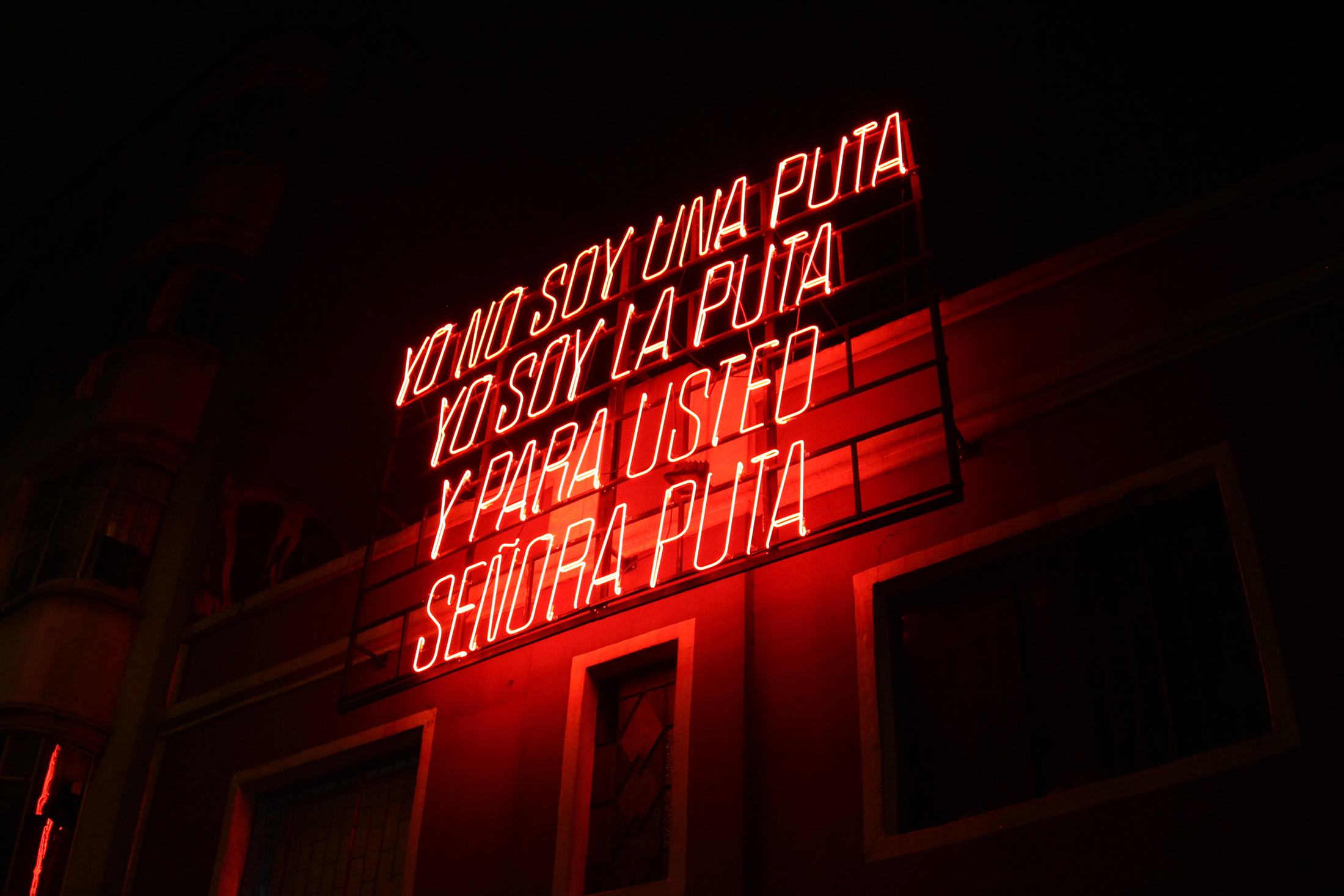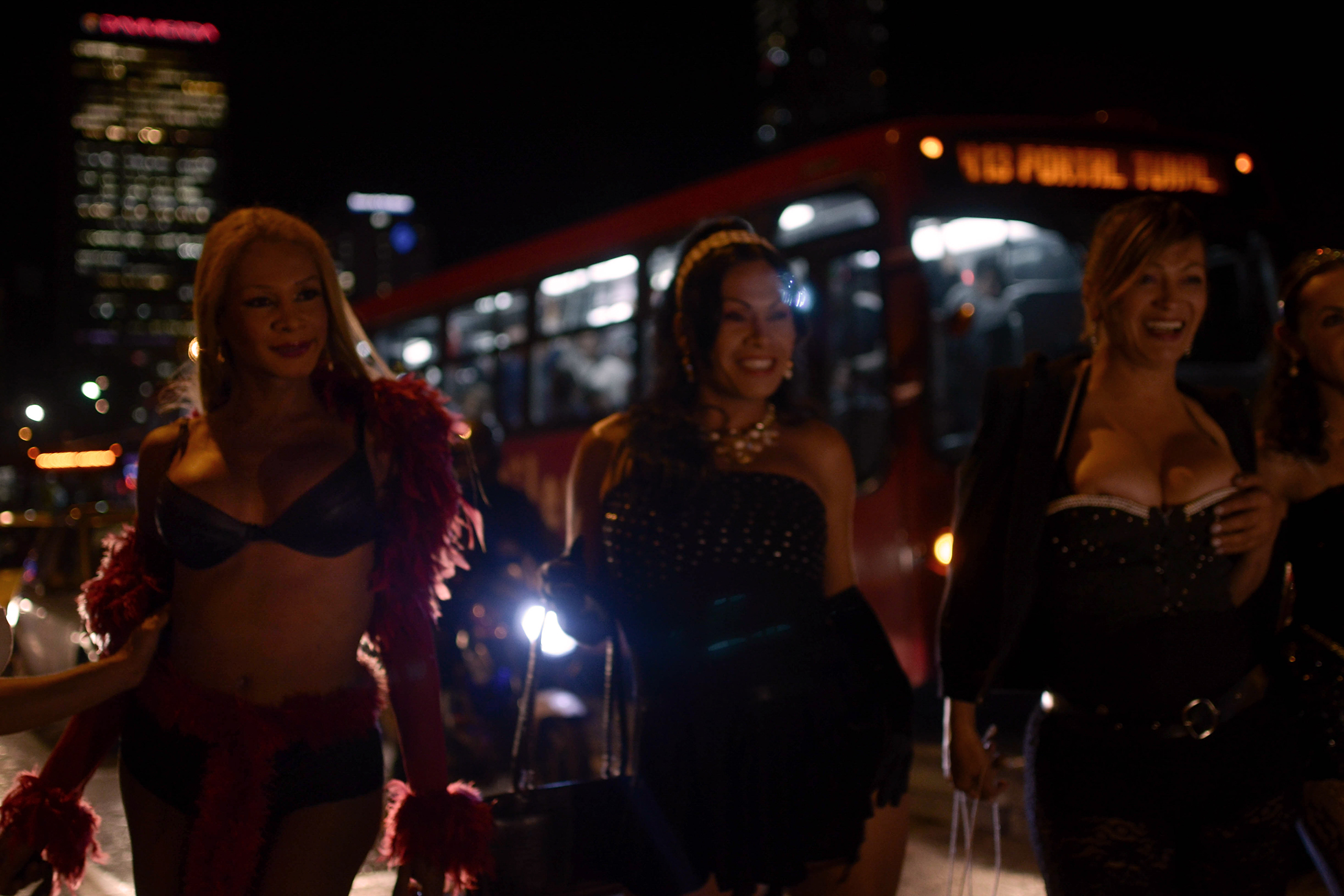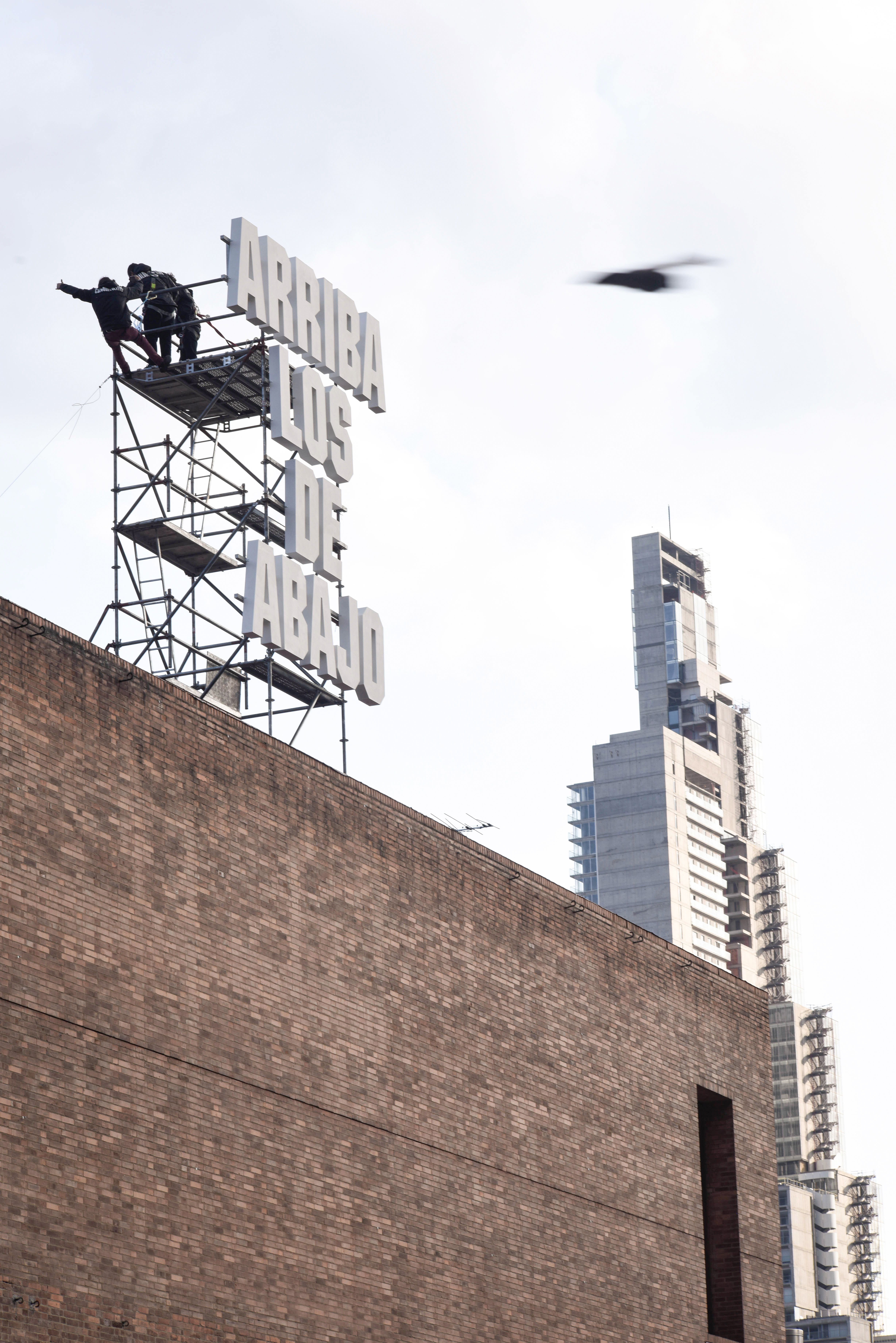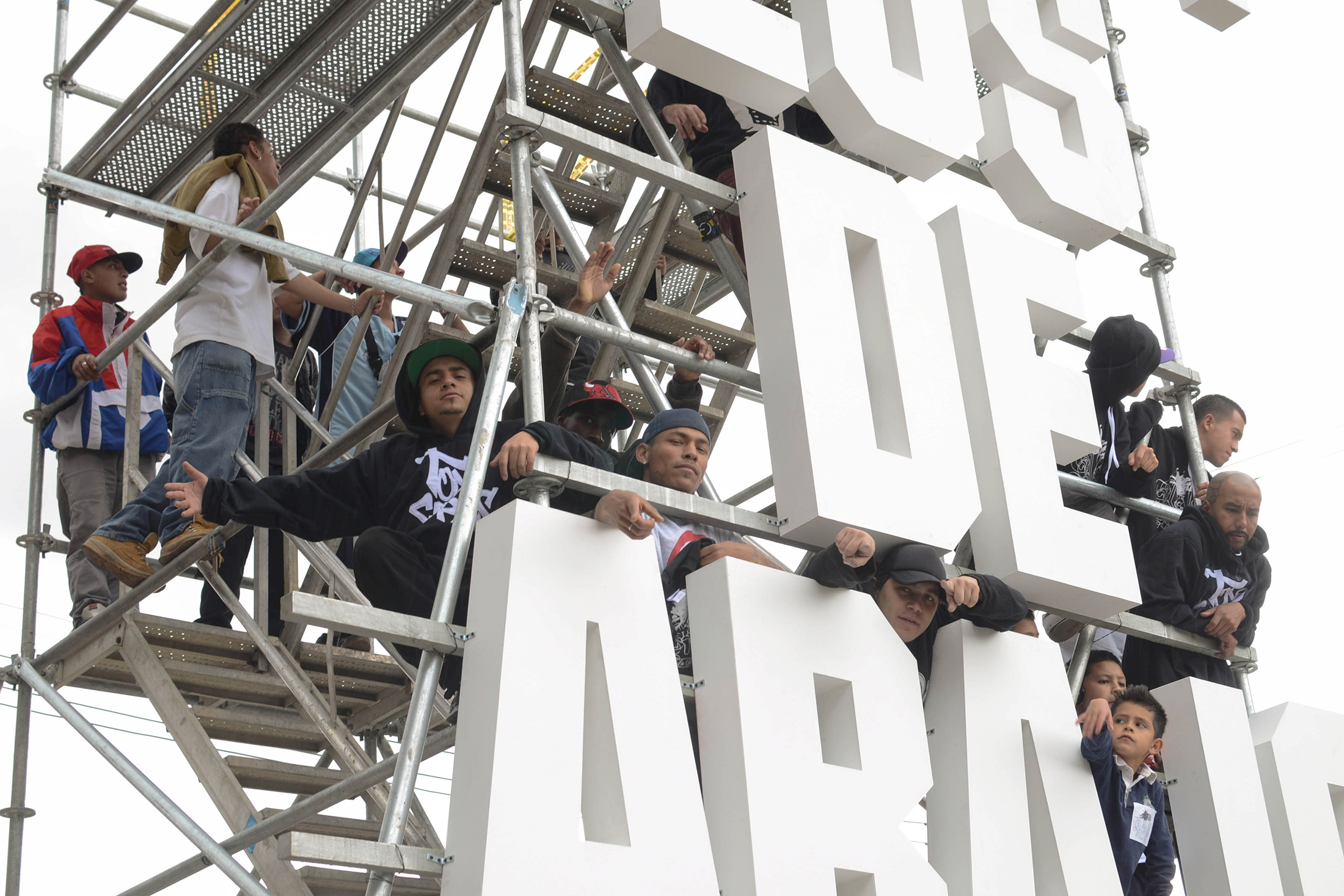Moved by the desire to get rid of the stigma of a violent and drug-ridden city, Medellín has become one of the most successful city brands in the world. Through megaprojects, mega architects, and mega-events (the biennial where this project was carried out was not the exception), the city presents itself as an example of urban "renewal", public-private initiatives, and a case study for urban developers.
Saying that is an example of successful city branding is not a compliment, understanding the city in terms of a brand suggests that the problem is not inequality but bad PR and branding. And indeed, the kind of solutions the city-as-brand proposes and carries out are purely aesthetical and superficial. Unmistakably, under these abstract and positive discourses hides systematic violence against the most vulnerable populations whose fate is to be sacrificed for the "bettering" of the city.
Saying that is an example of successful city branding is not a compliment, understanding the city in terms of a brand suggests that the problem is not inequality but bad PR and branding. And indeed, the kind of solutions the city-as-brand proposes and carries out are purely aesthetical and superficial. Unmistakably, under these abstract and positive discourses hides systematic violence against the most vulnerable populations whose fate is to be sacrificed for the "bettering" of the city.
They are deemed unworthy of the dreamed city-to-be and are expelled, displaced, and disappeared in the name of "development", "innovation", and the "future".
One of the ways in which the city's administration legitimizes these actions of expulsion and intra-urban displacement is by creating advertising campaigns and, more specifically, mottos that connote an apparently inclusive "we" or "all" and an unquestionable objective. For instance, "Medellín, Todos por la Vida" (Medellin, We All For Life) was the slogan utilized by Medellin in 2015. Through this slogan, the city involved the citizenry in an urban project that the majority of the population was not going to benefit from and, in fact, were the victims of.
All the glow of urban transformation through infrastructure in Medellin, quite literally[1], hides thousands of bodies of people
One of the ways in which the city's administration legitimizes these actions of expulsion and intra-urban displacement is by creating advertising campaigns and, more specifically, mottos that connote an apparently inclusive "we" or "all" and an unquestionable objective. For instance, "Medellín, Todos por la Vida" (Medellin, We All For Life) was the slogan utilized by Medellin in 2015. Through this slogan, the city involved the citizenry in an urban project that the majority of the population was not going to benefit from and, in fact, were the victims of.
All the glow of urban transformation through infrastructure in Medellin, quite literally[1], hides thousands of bodies of people
deemed “disposable” and thrown away in dumps. In 2002, Medellin saw the biggest urban military operation in the long history of Colombia's war: the Operación Orion[2], carried out by the army and death squads that left hundreds of people disappeared, displaced, and dead. This is how it becomes evident that the logic of urban renewal is a logic of colonial war that violently occupies territories and bodies.
Medellín Sobre Todos (Medellin Above All) is an agitprop counter-campaign, which seeks to subvert the communicative apparatuses employed by the municipal administration, highlighting the imposition of a model of exclusionary city that materializes over citizens. The motto Medellín Sobre Todos hiddenly relates to the slogan "Deutschland Über Alles" (Germany Above All), used by Nazis to legitimize and involve German citizens in their project of a nation, rhetorically
Medellín Sobre Todos (Medellin Above All) is an agitprop counter-campaign, which seeks to subvert the communicative apparatuses employed by the municipal administration, highlighting the imposition of a model of exclusionary city that materializes over citizens. The motto Medellín Sobre Todos hiddenly relates to the slogan "Deutschland Über Alles" (Germany Above All), used by Nazis to legitimize and involve German citizens in their project of a nation, rhetorically
linking city branding with Nazi propaganda strategies.
This project was carried out in close collaboration with the community of workers (mechanics, welders, and all professions related to car repair) of Naranjal, a working-class neighborhood located in the center of Medellín that is fighting against its demolition and on which the city exercises all kinds of harassment. The people of this neighborhood have a strong sense of community and belonging to the territory. Medellín Sobre Todos seeks to amplify their struggle, turning the slogan into a pretext to produce experiences, articulated in various communication devices built with them and ready to be used.
[1] https://www.bbc.com/news/magazine-30573931
[2]
https://www.huffpost.com/entry/a-sea-of-tears-impunity-victims-still-searching_b_580a1eace4b0f8715789f93c
This project was carried out in close collaboration with the community of workers (mechanics, welders, and all professions related to car repair) of Naranjal, a working-class neighborhood located in the center of Medellín that is fighting against its demolition and on which the city exercises all kinds of harassment. The people of this neighborhood have a strong sense of community and belonging to the territory. Medellín Sobre Todos seeks to amplify their struggle, turning the slogan into a pretext to produce experiences, articulated in various communication devices built with them and ready to be used.
[1] https://www.bbc.com/news/magazine-30573931
[2]
https://www.huffpost.com/entry/a-sea-of-tears-impunity-victims-still-searching_b_580a1eace4b0f8715789f93c
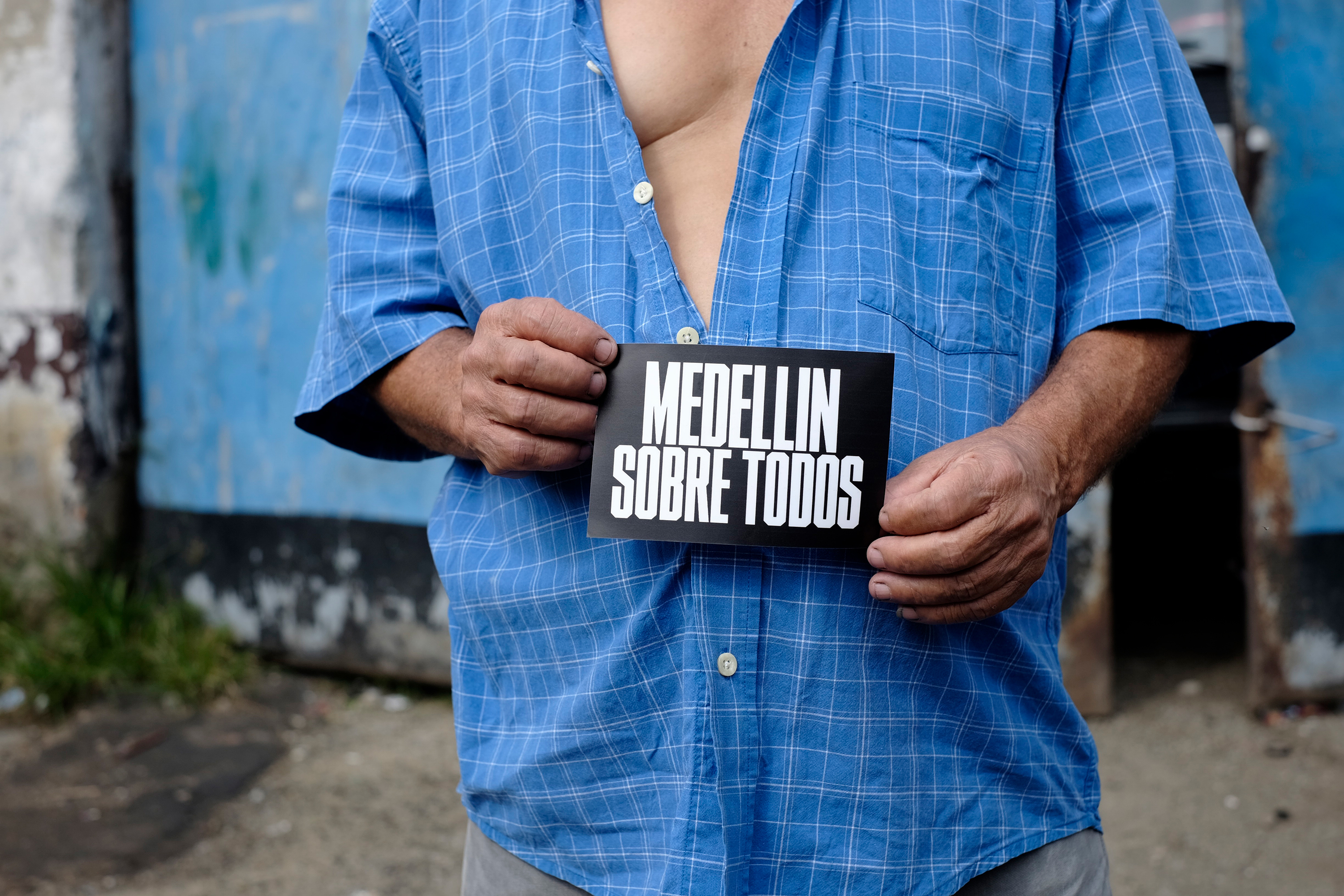
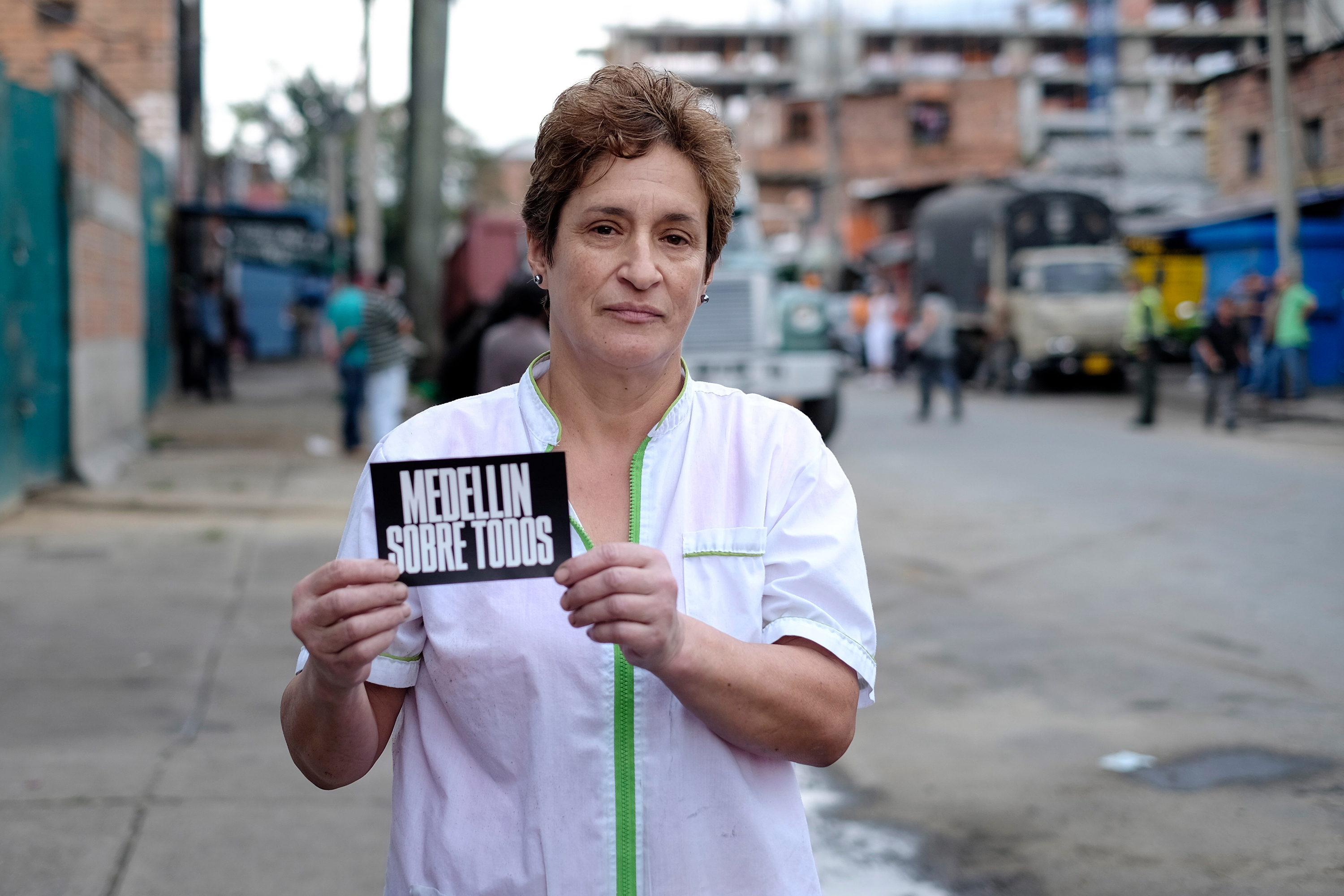
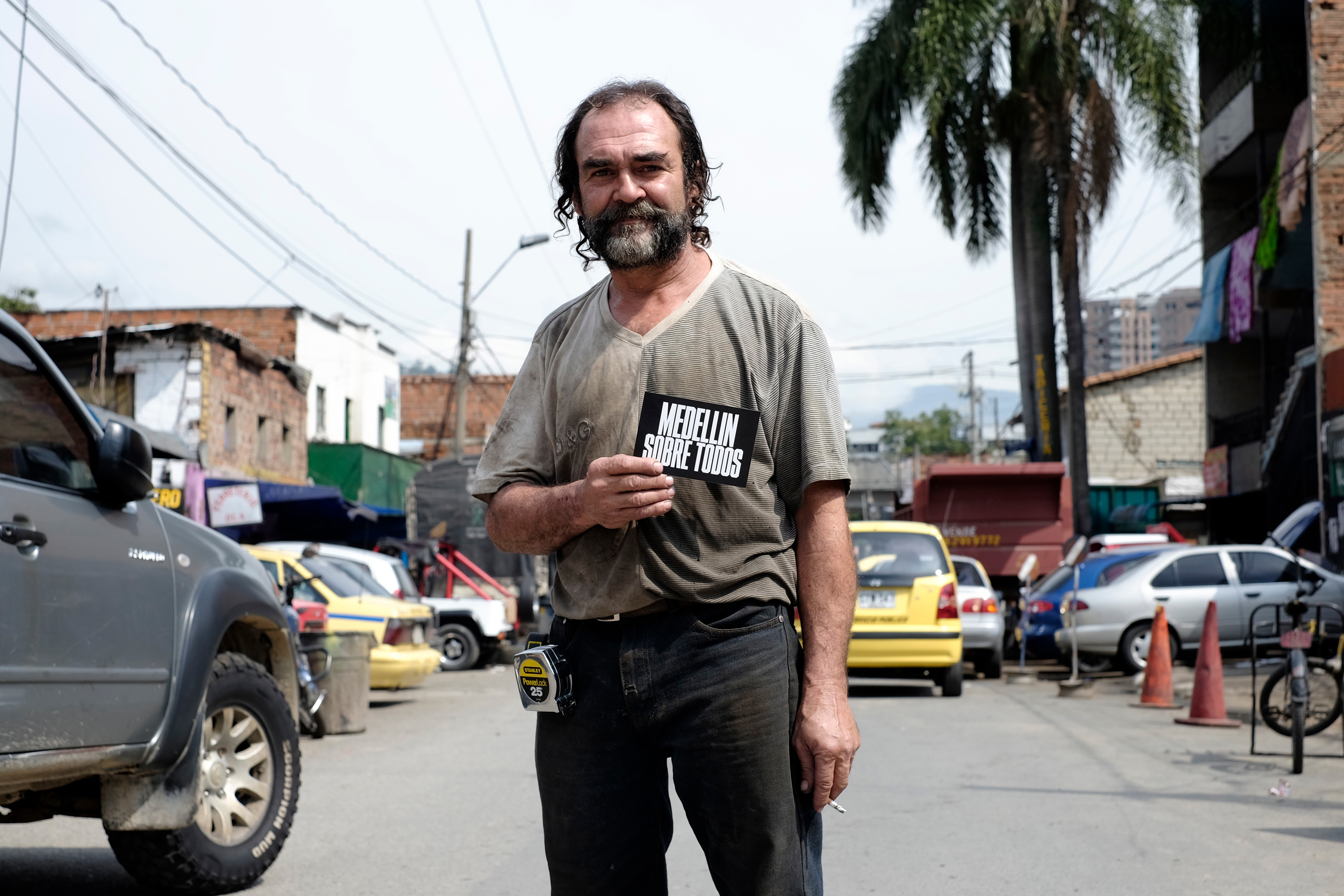
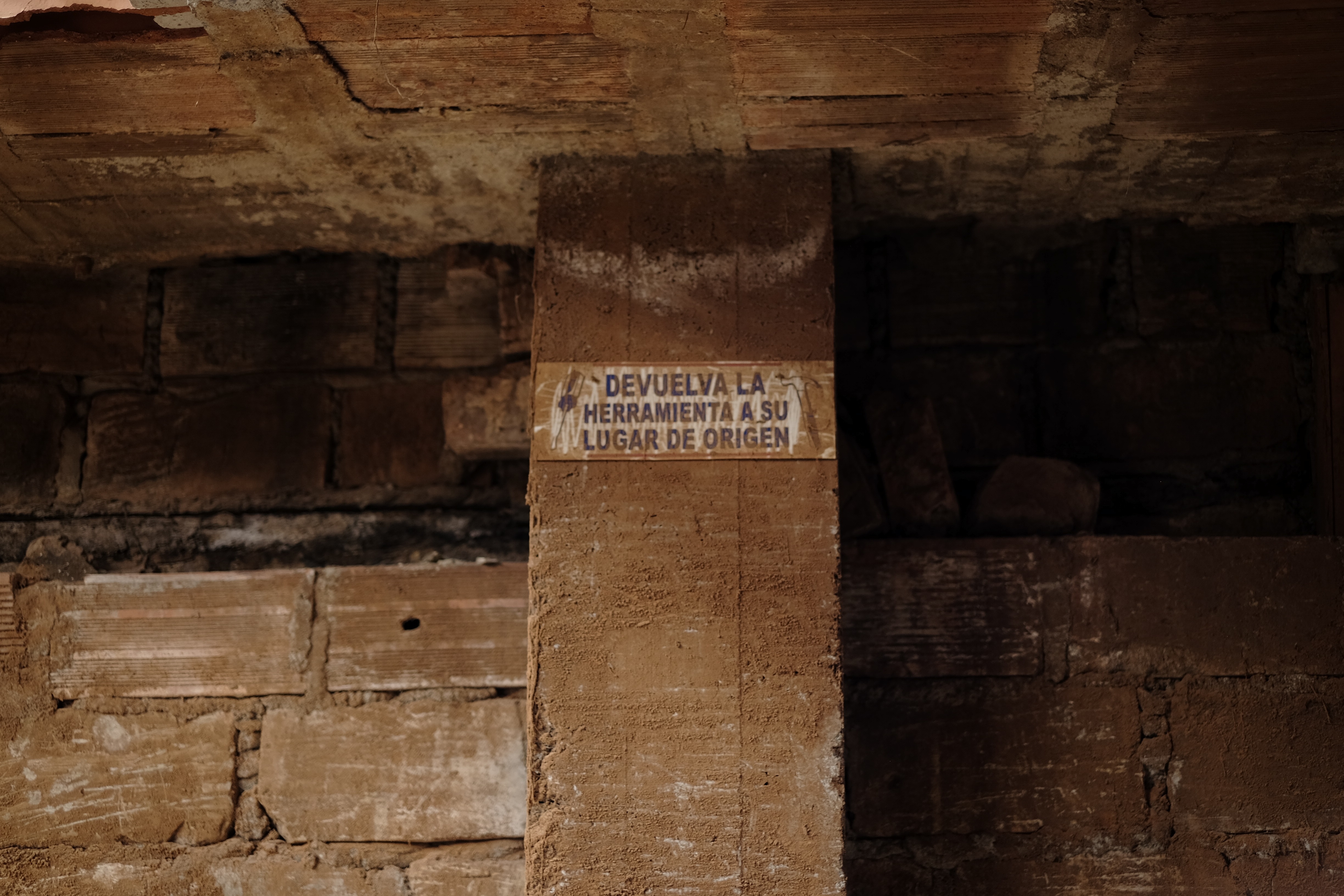
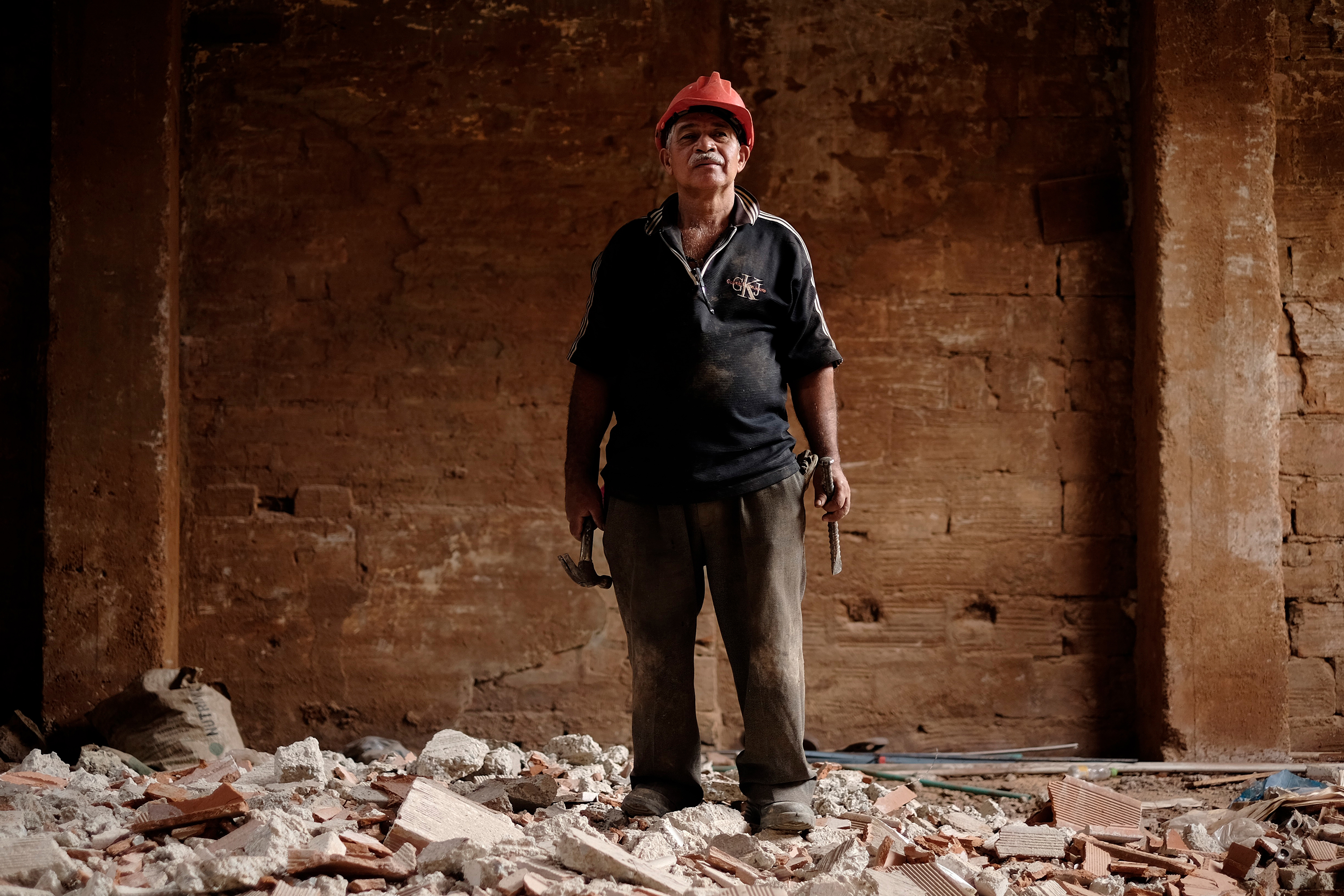
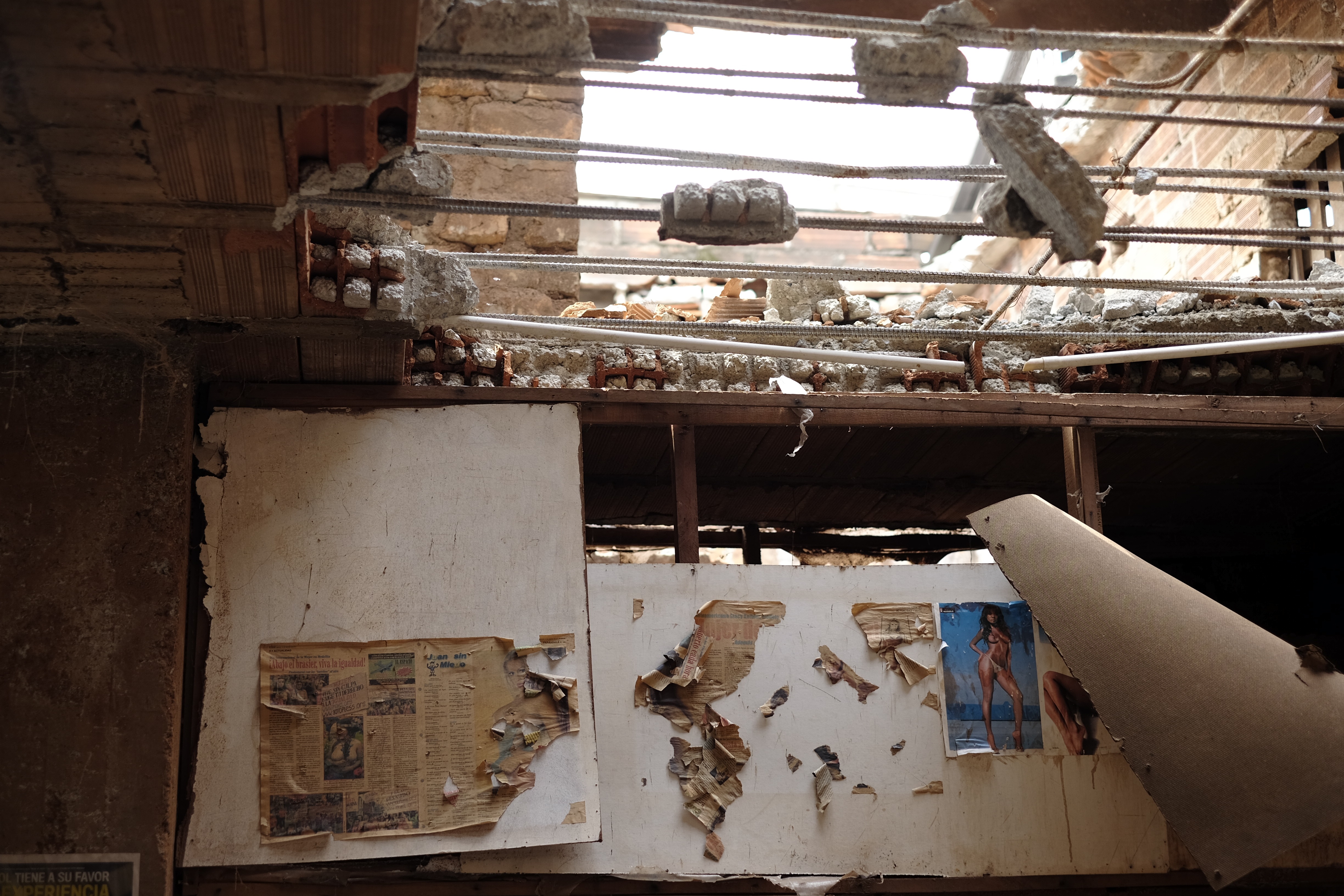
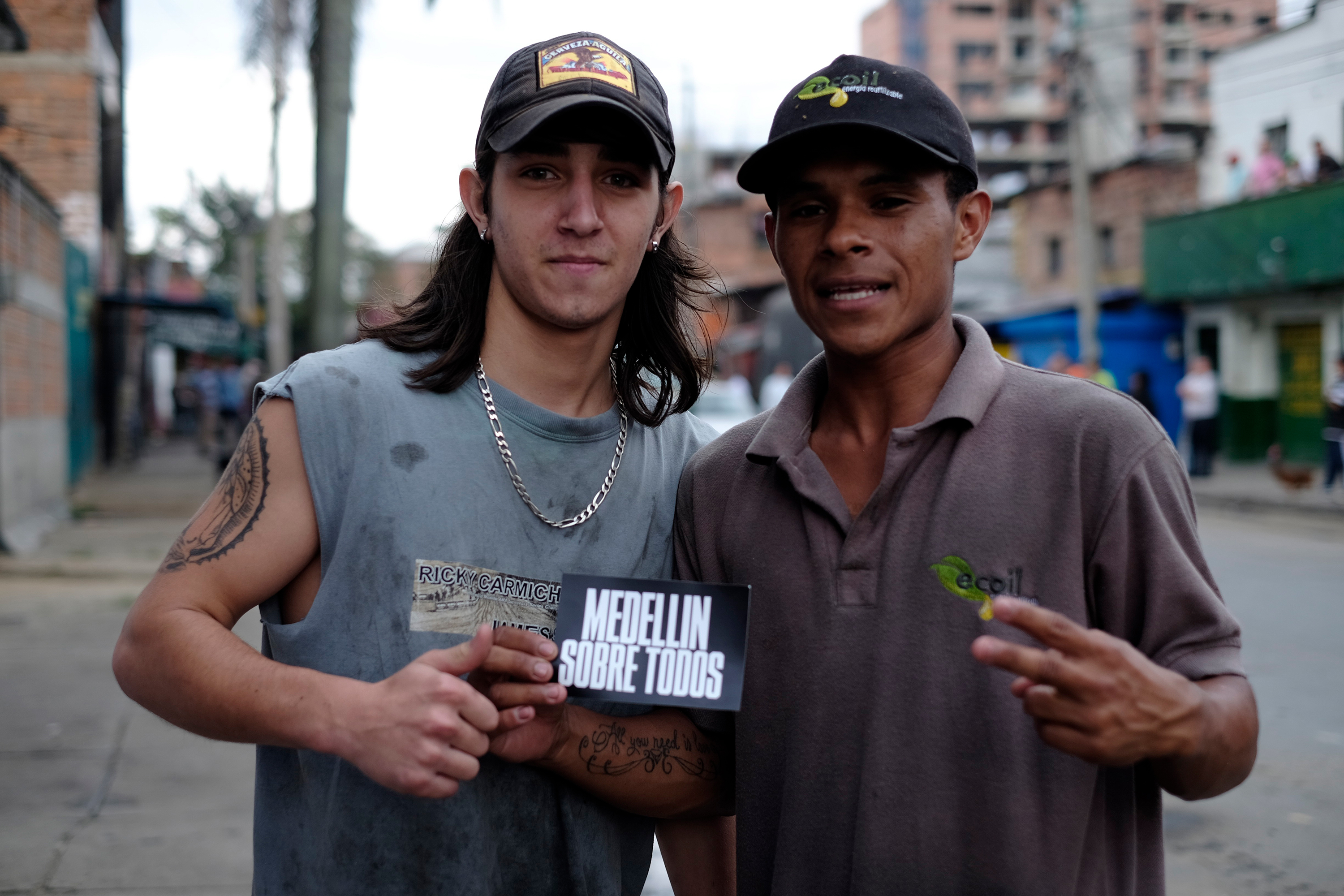
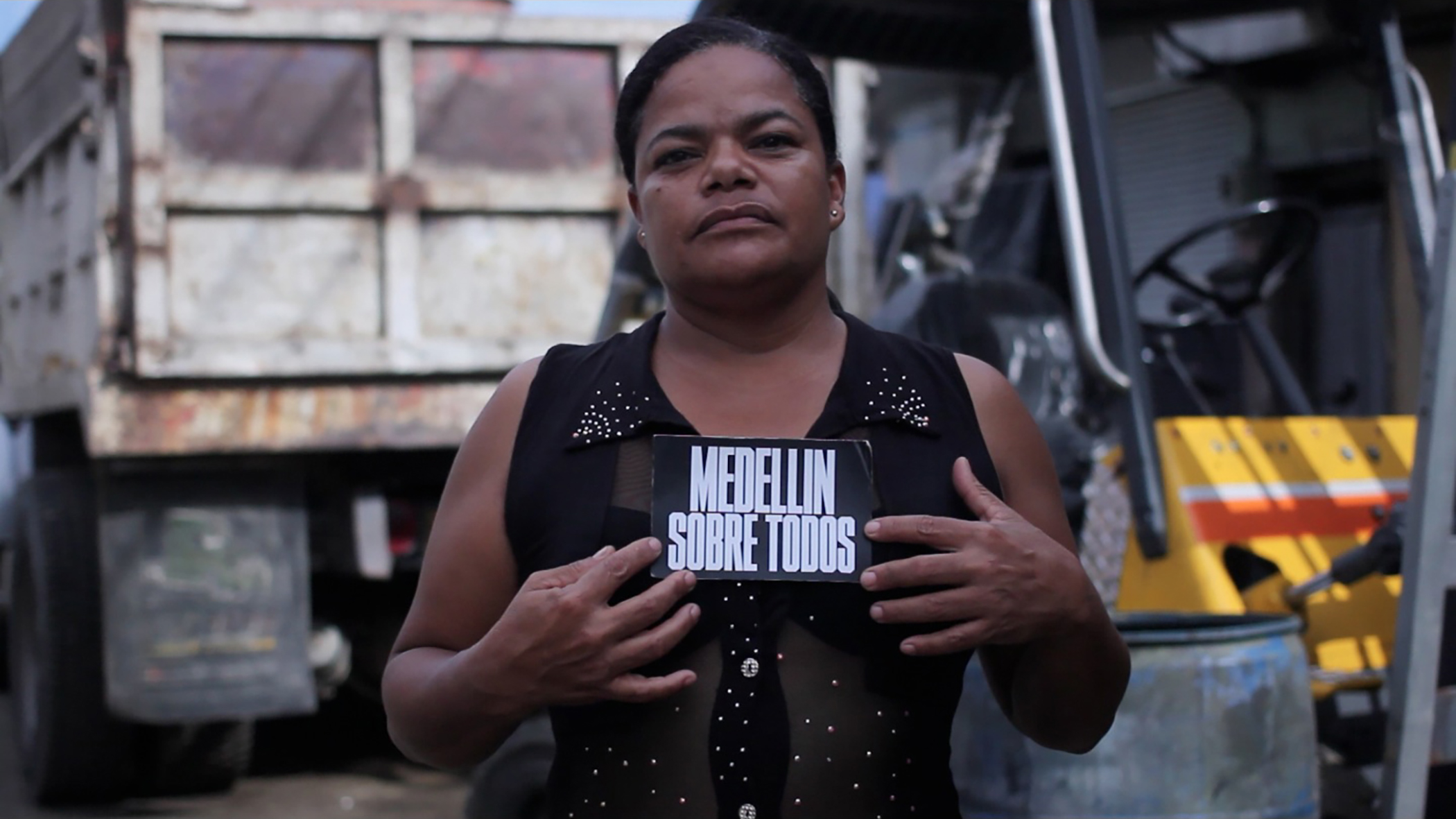
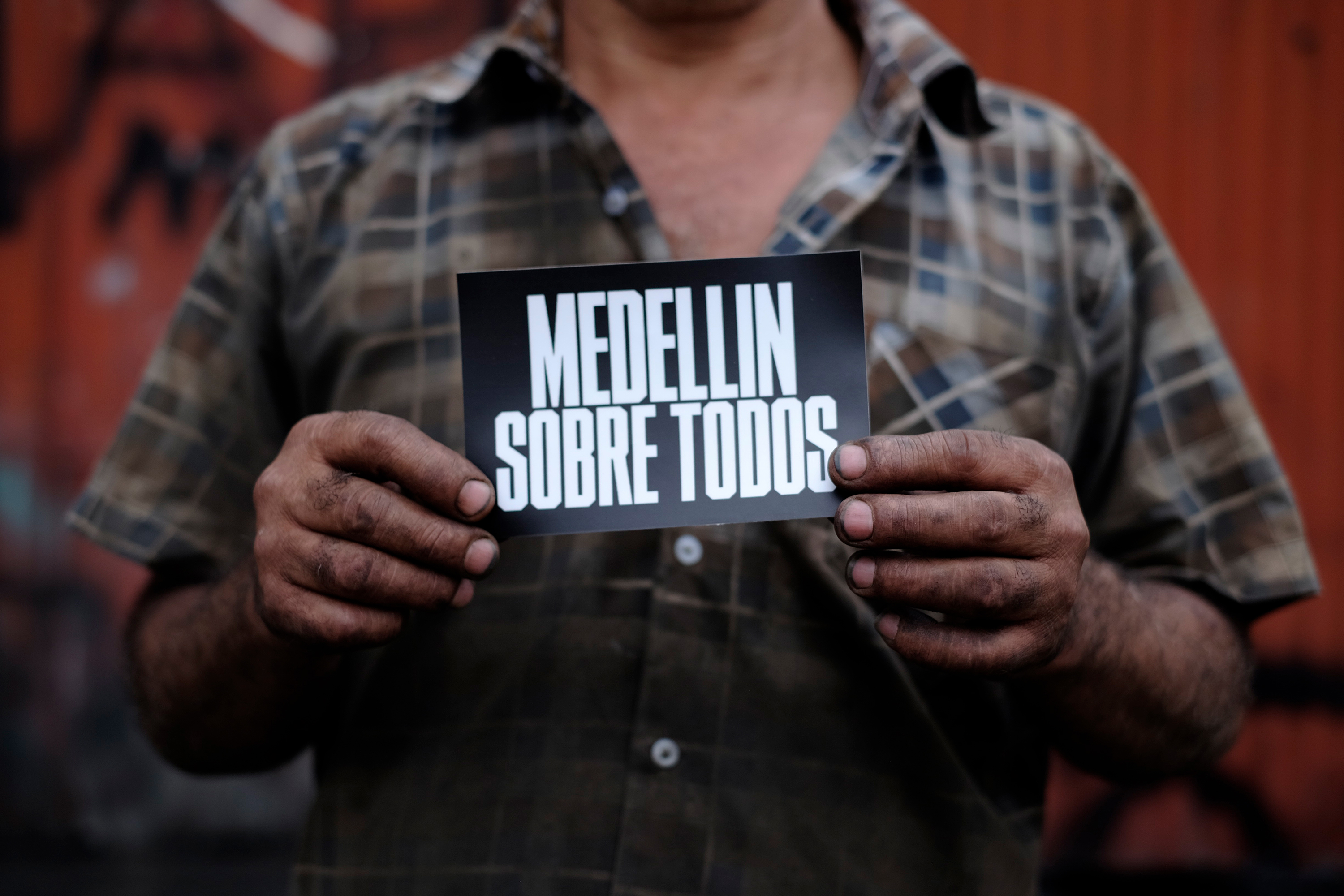


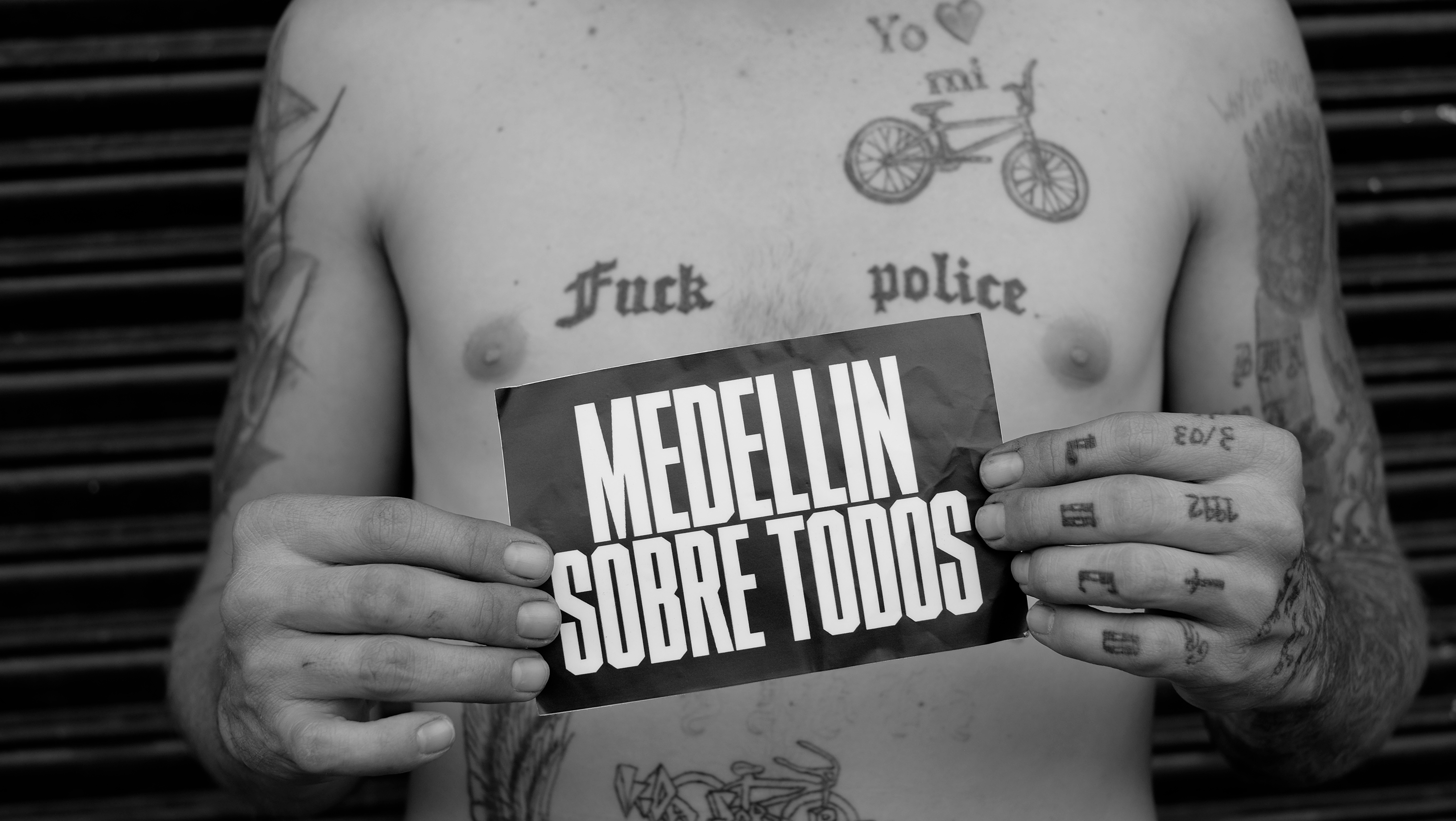
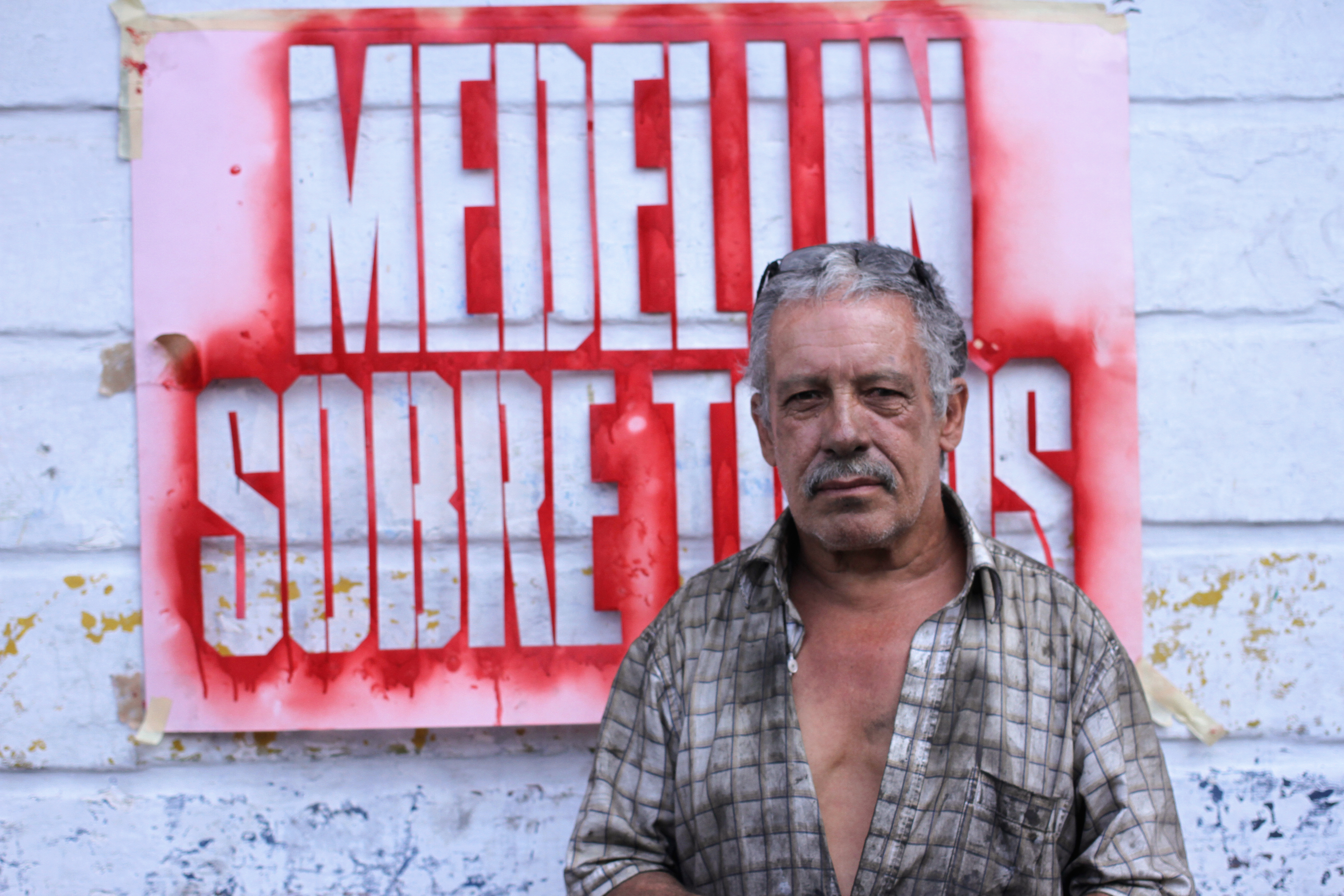
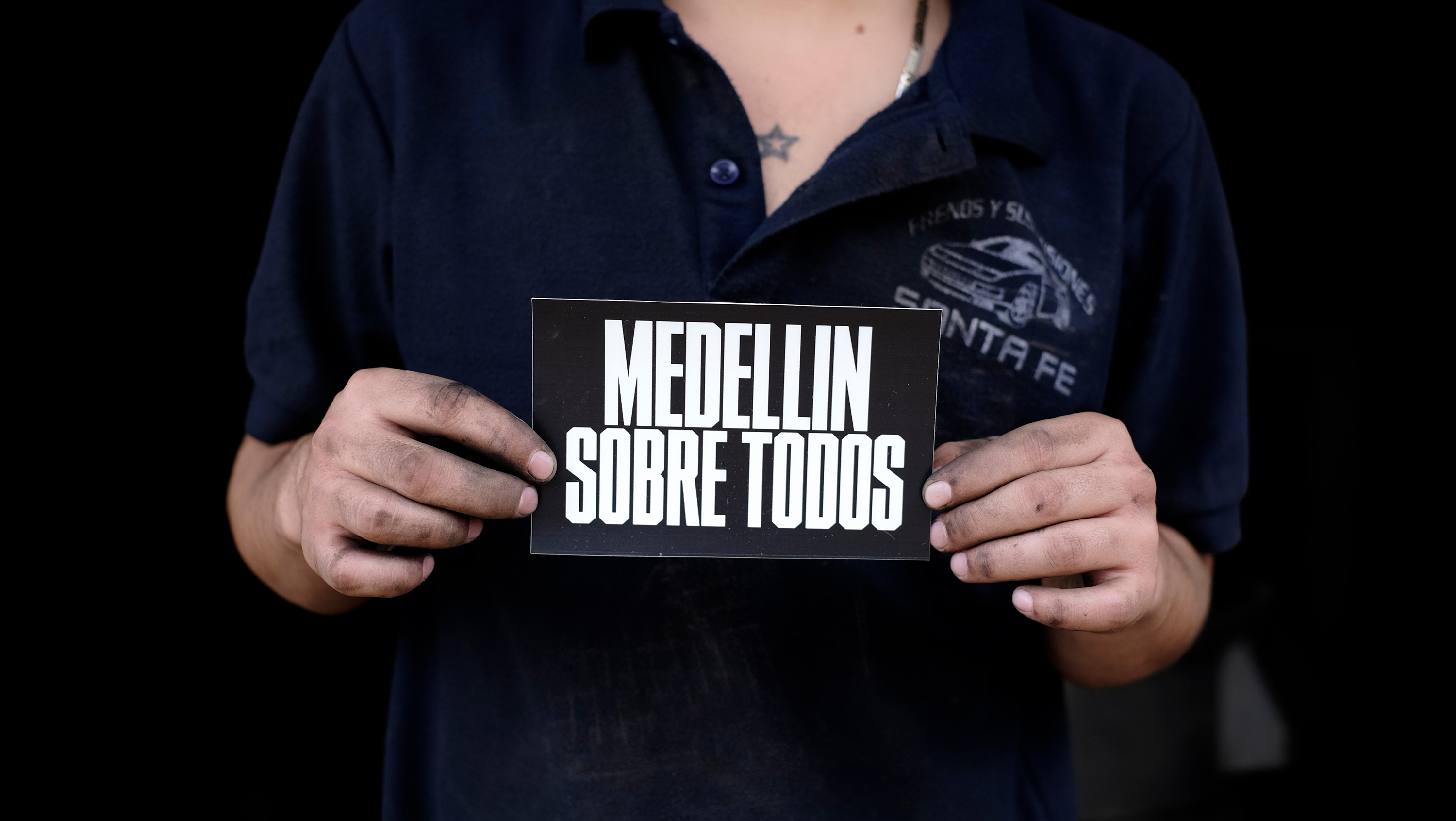



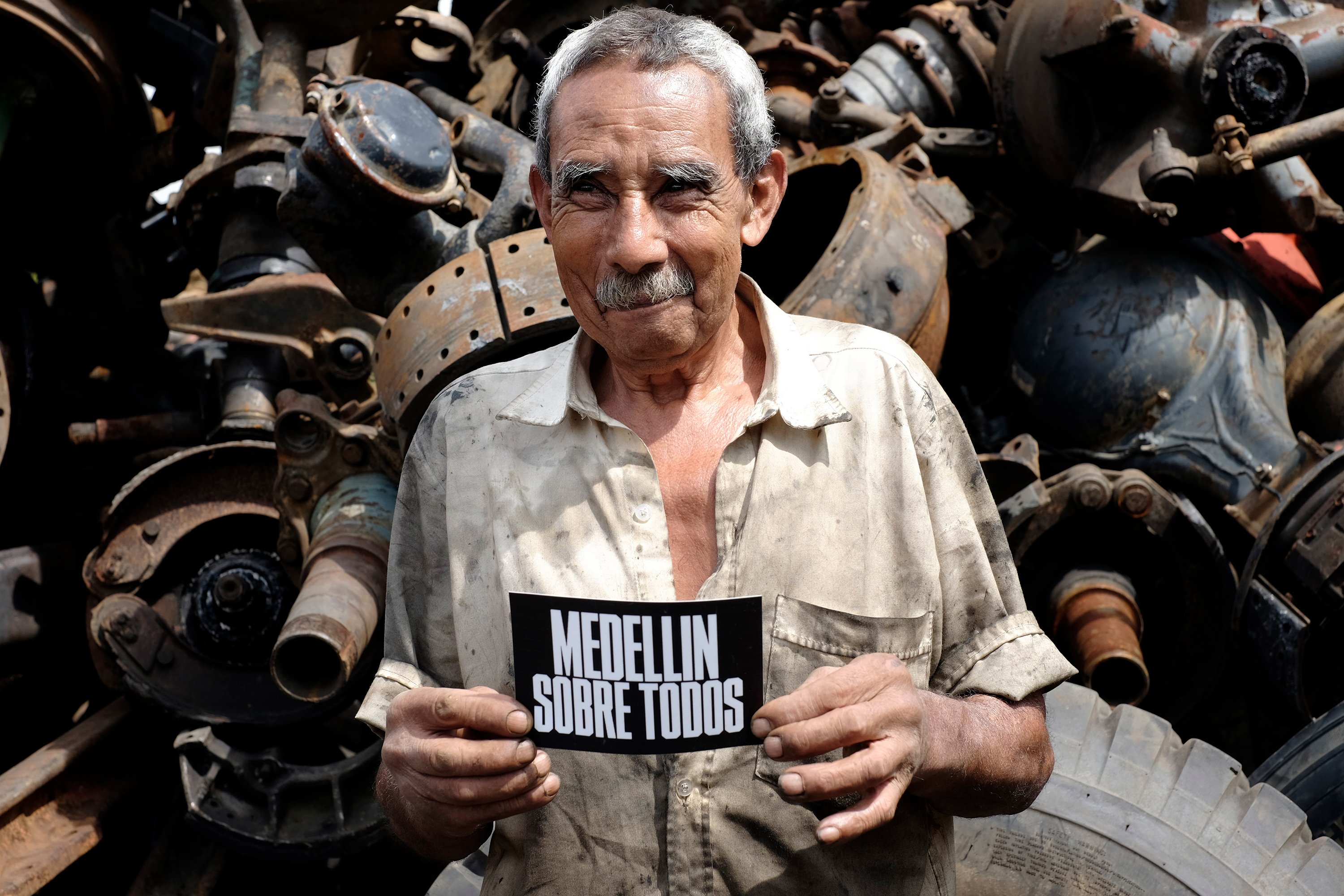


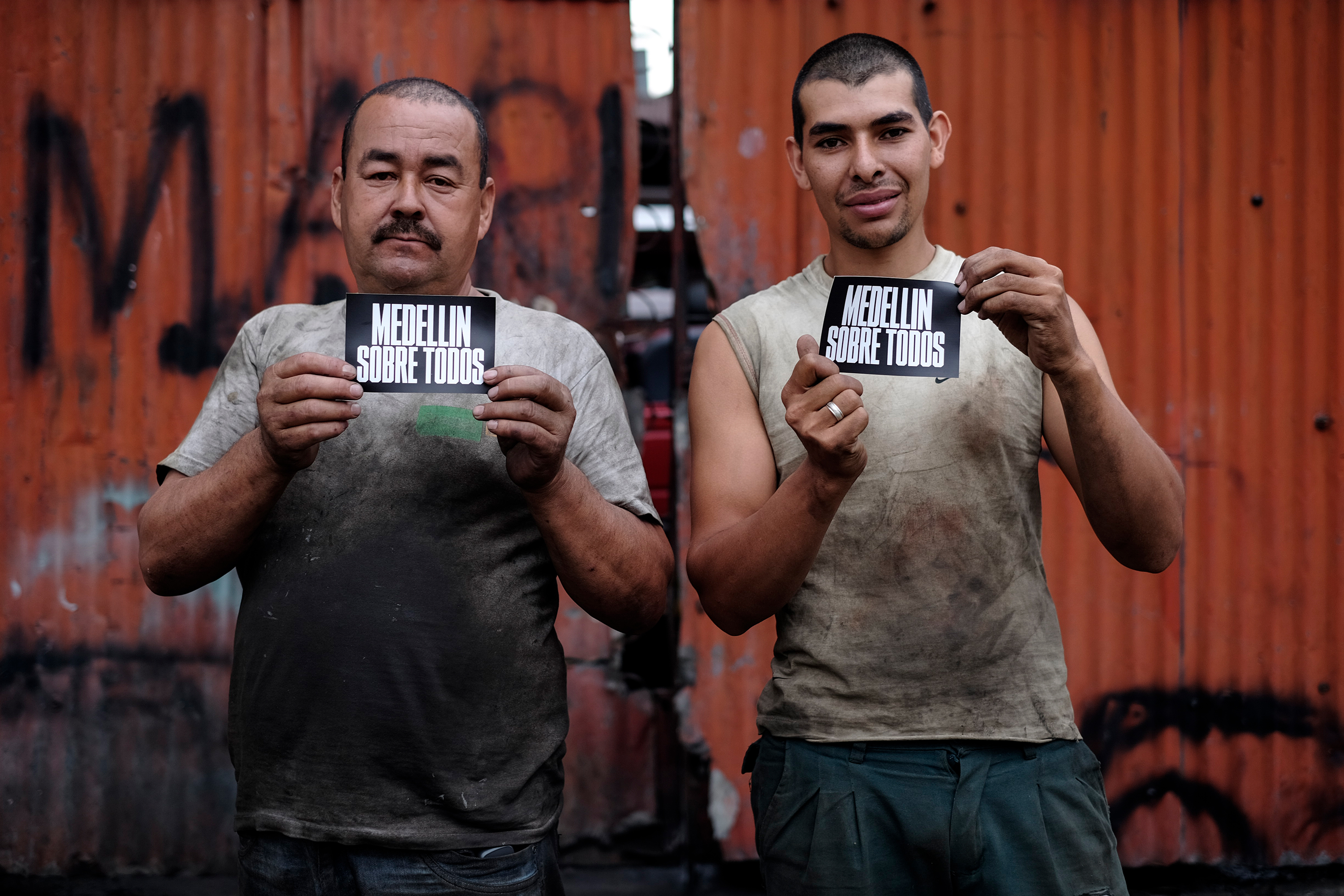
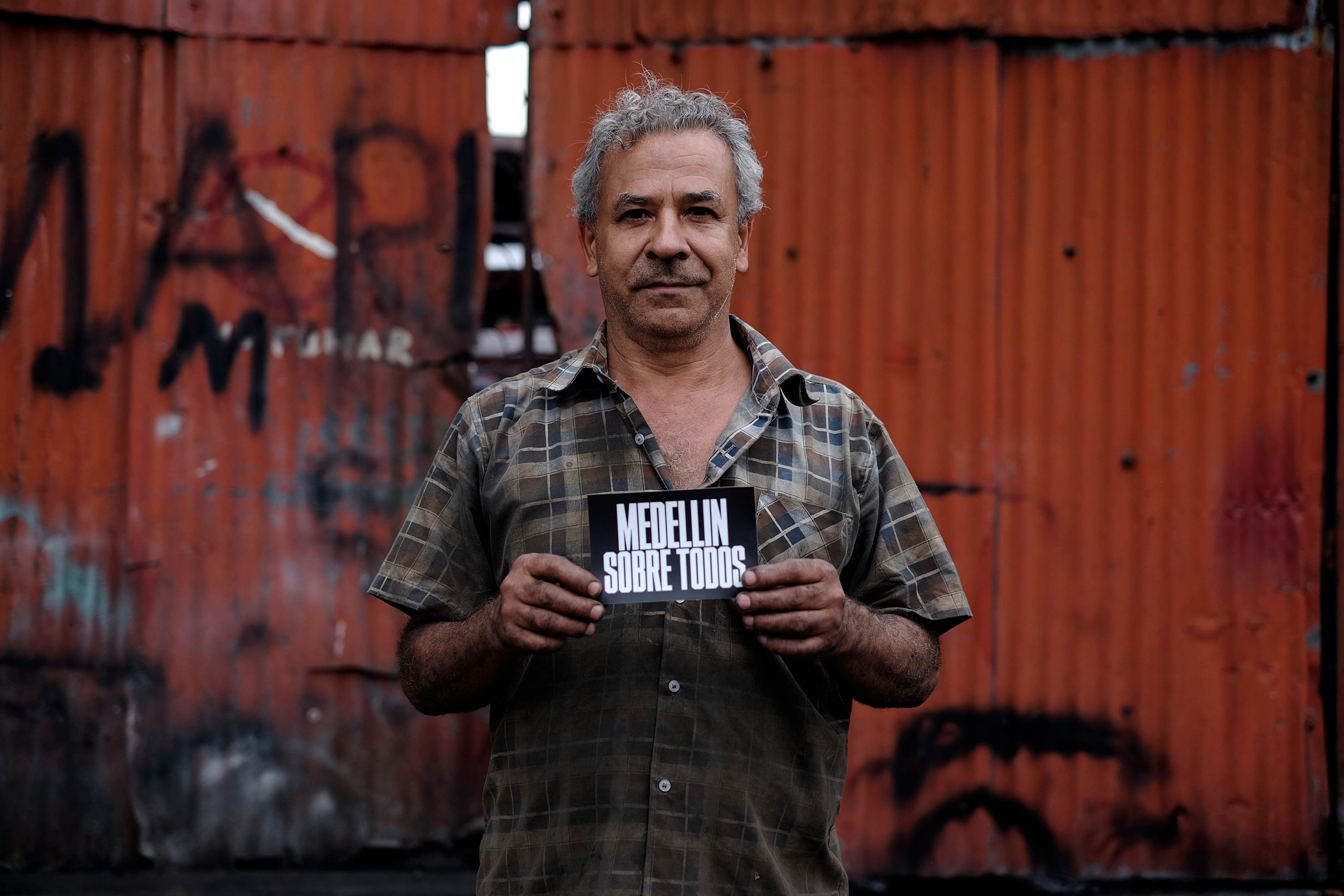
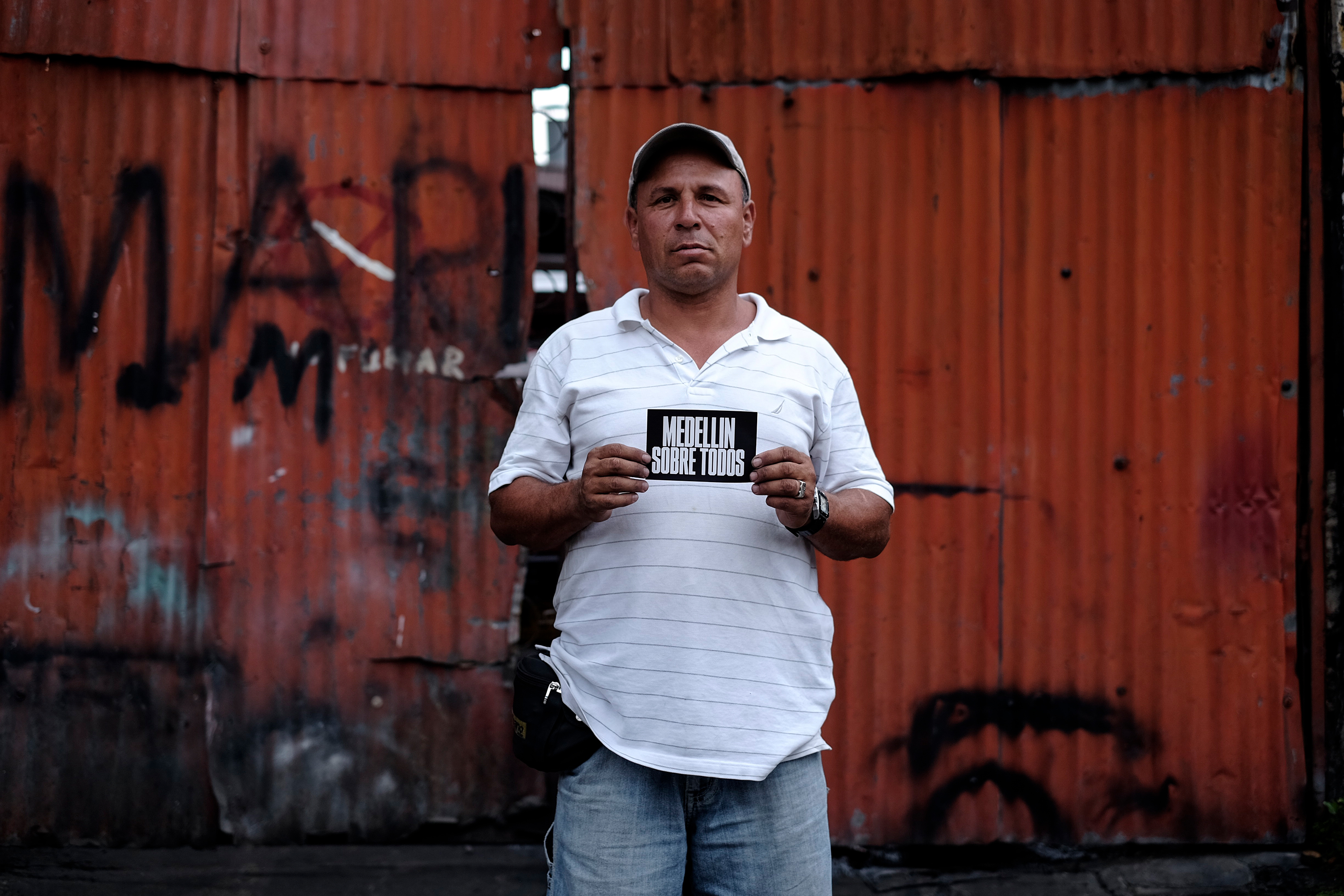
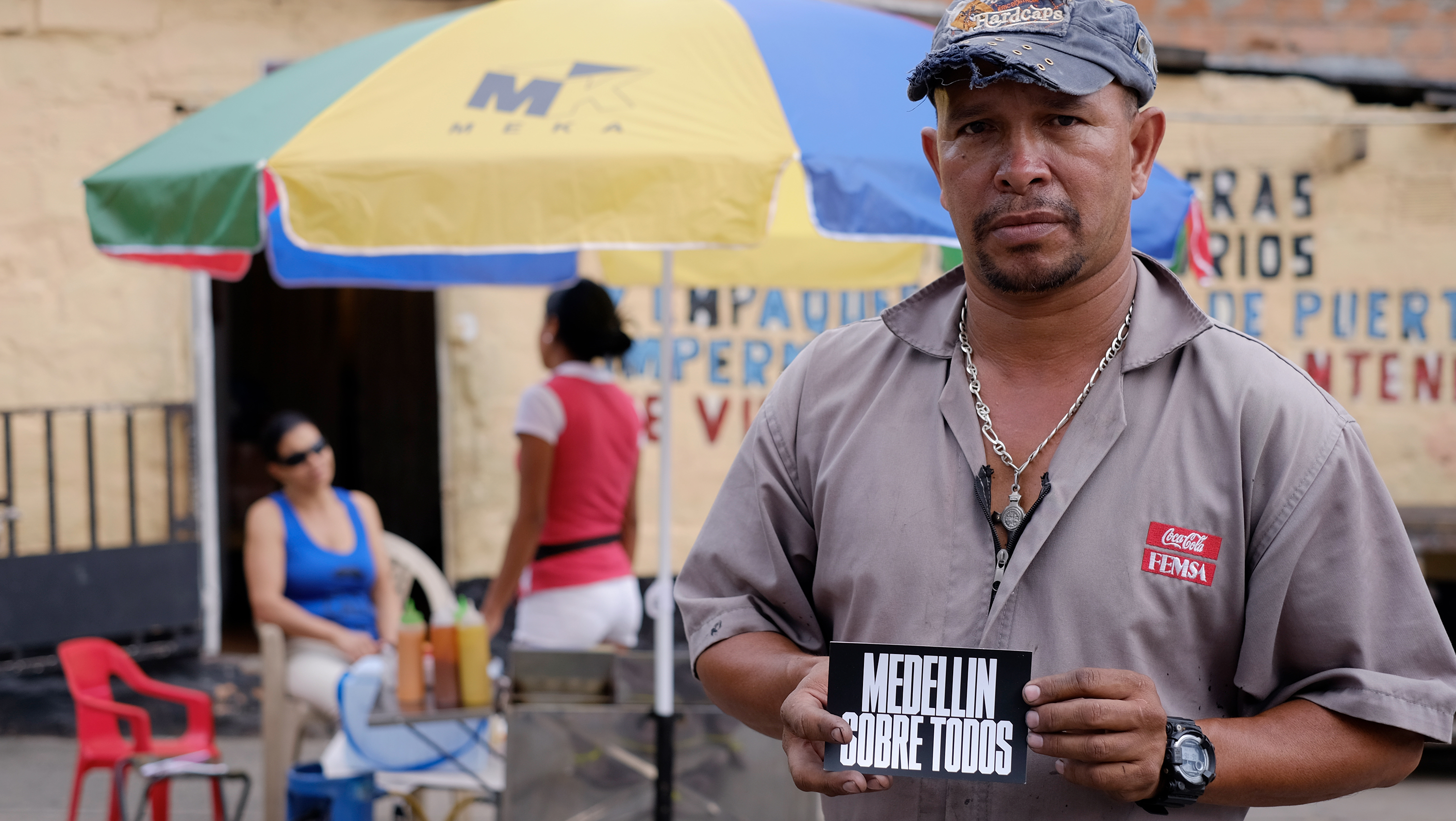
WORK ON SITE
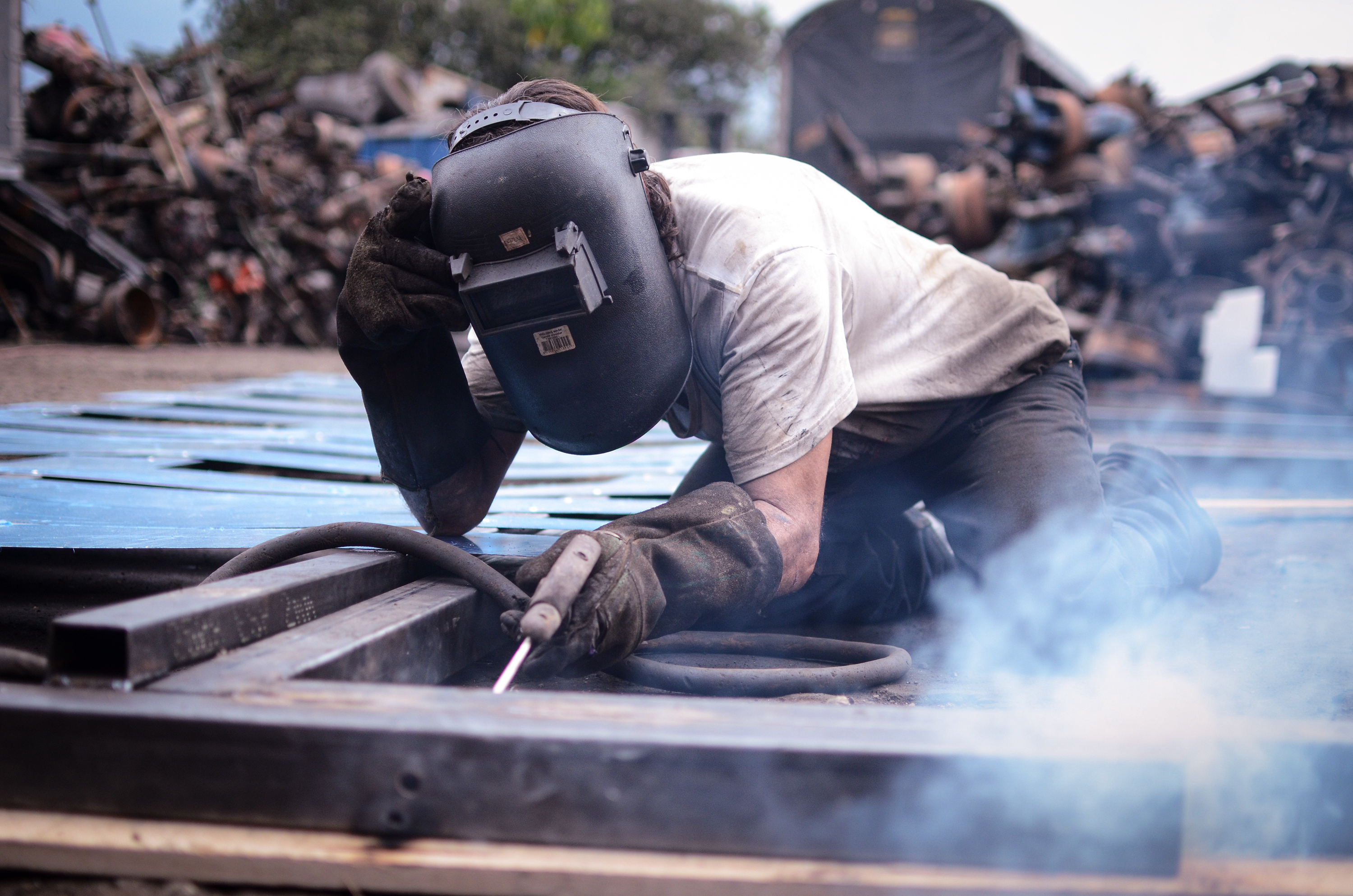
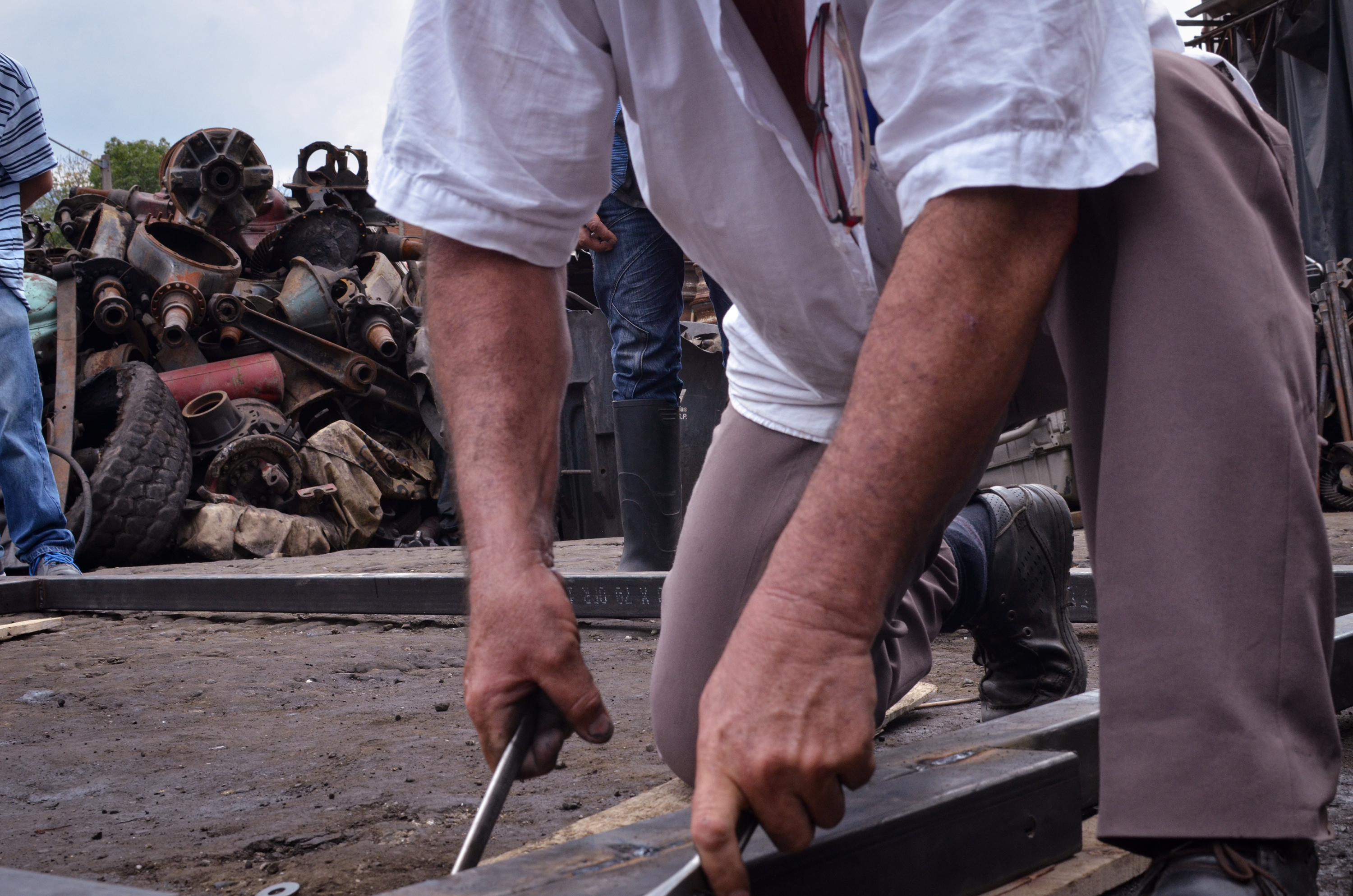

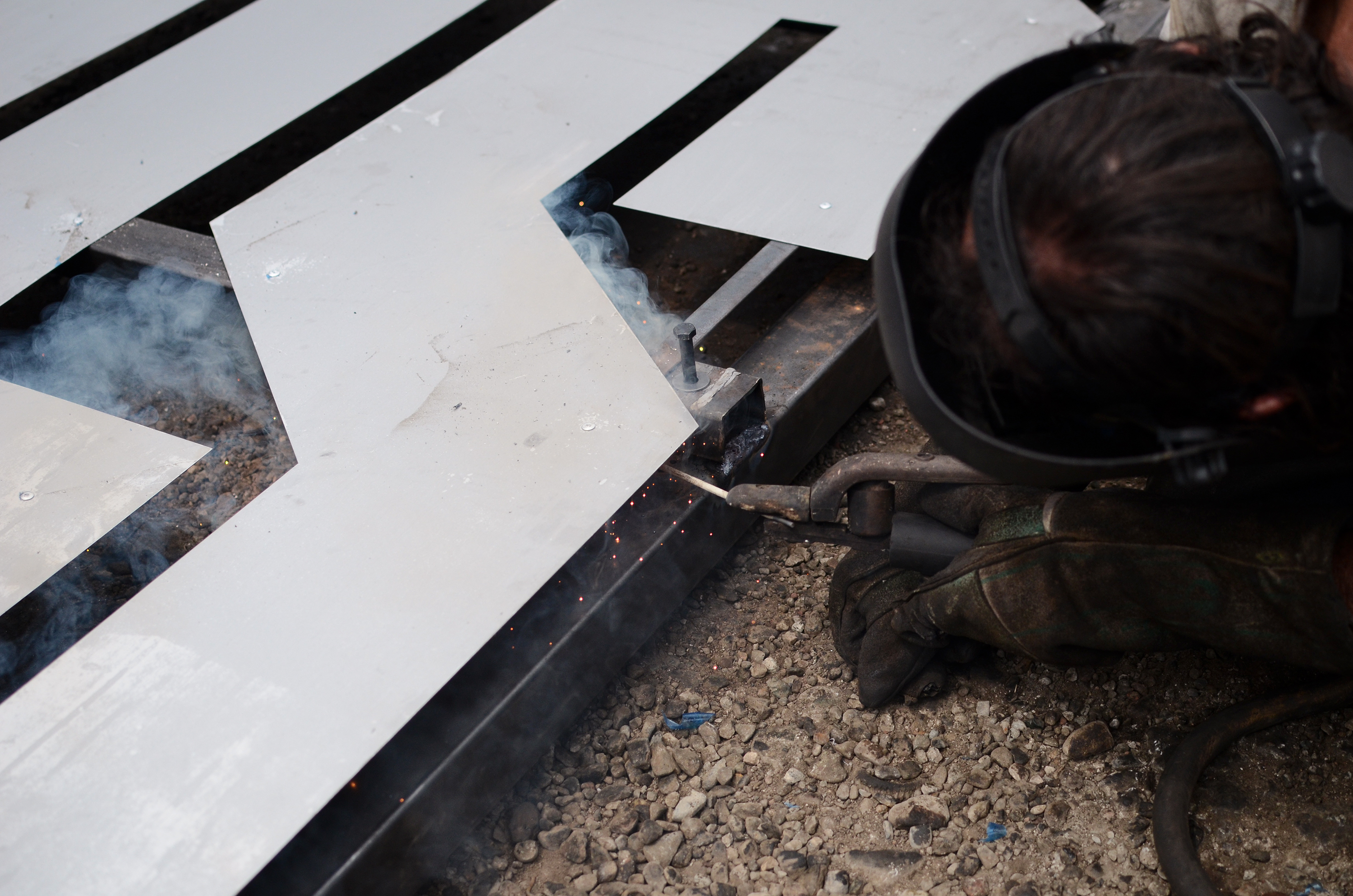

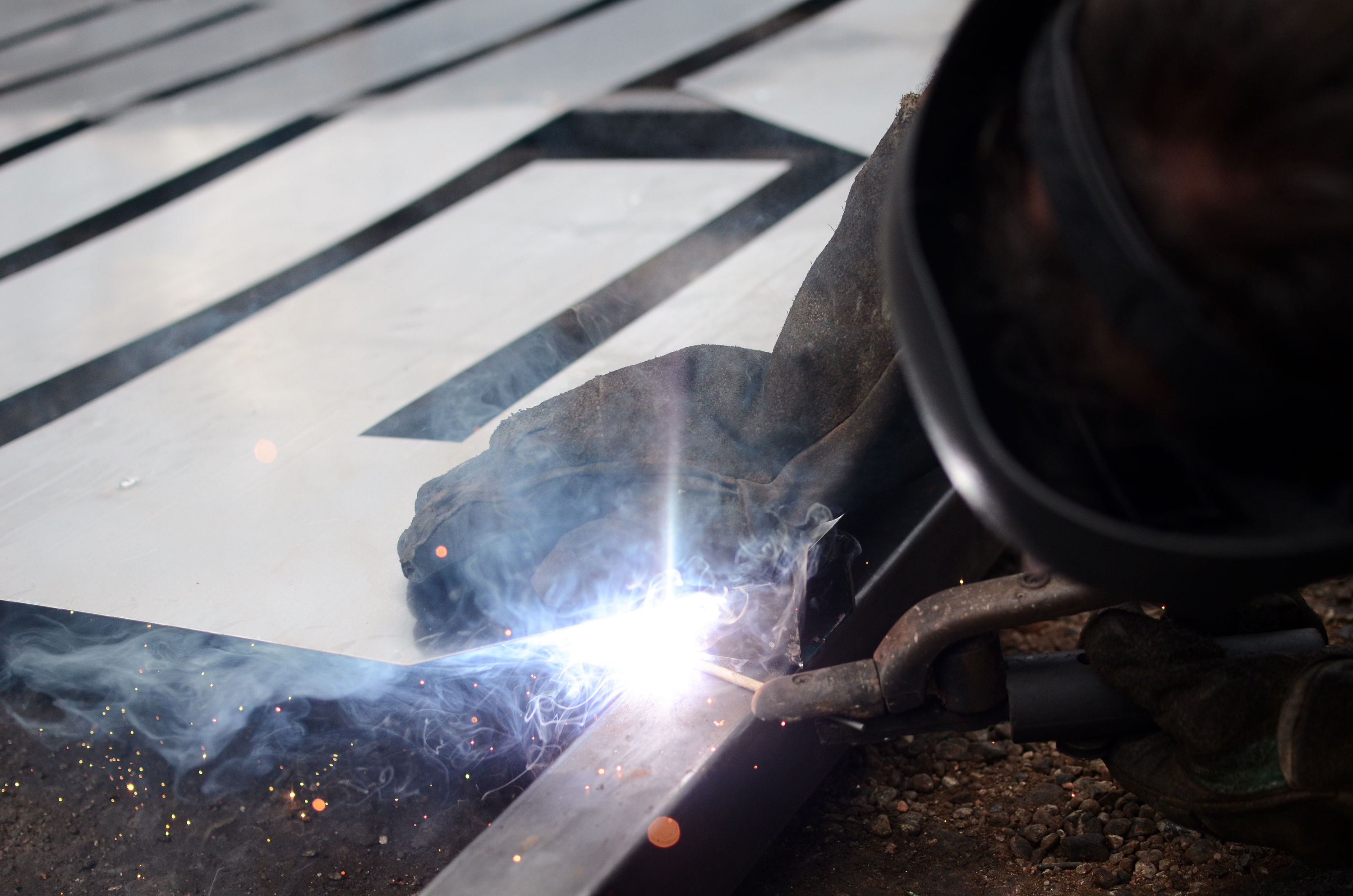
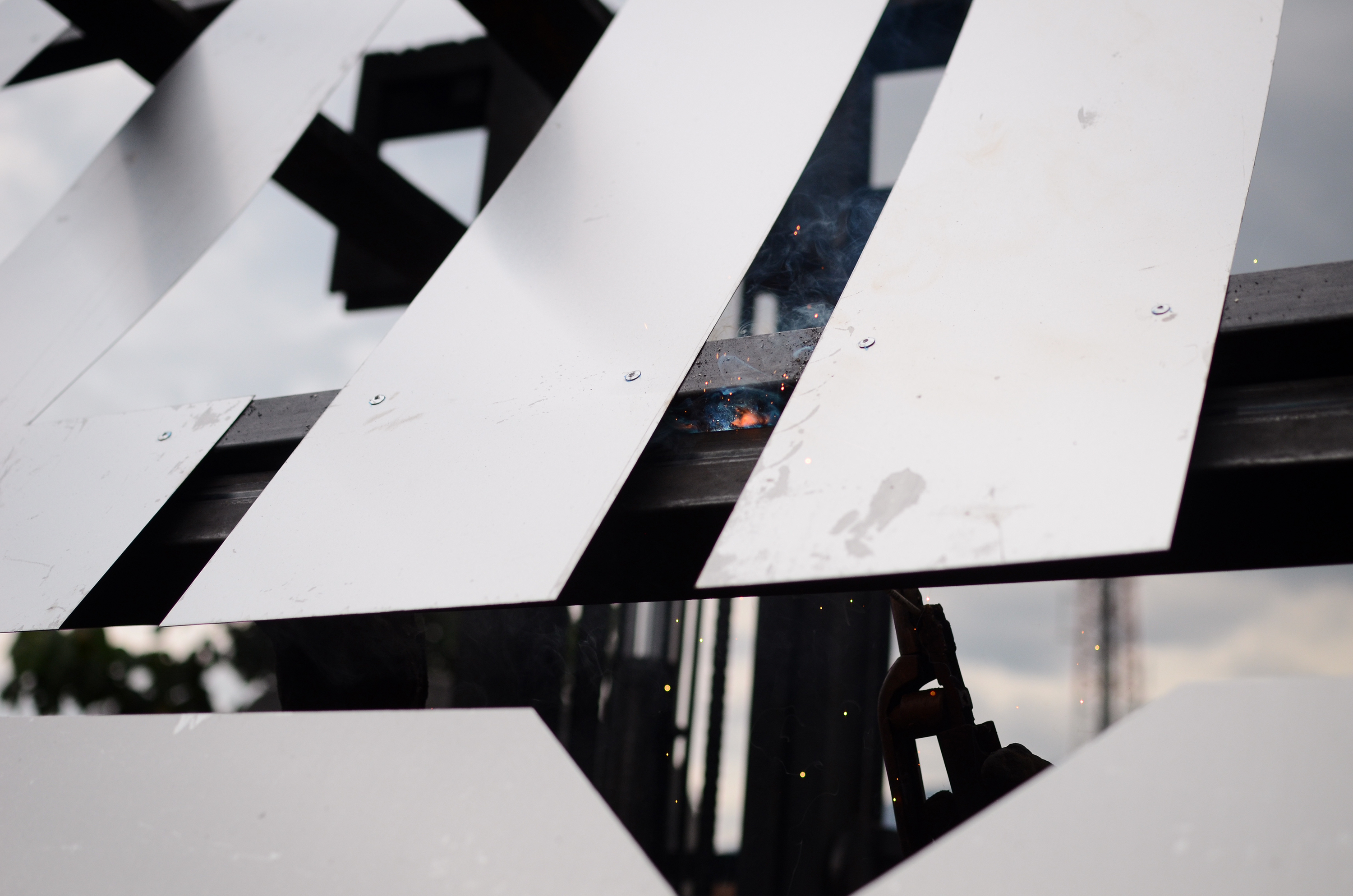


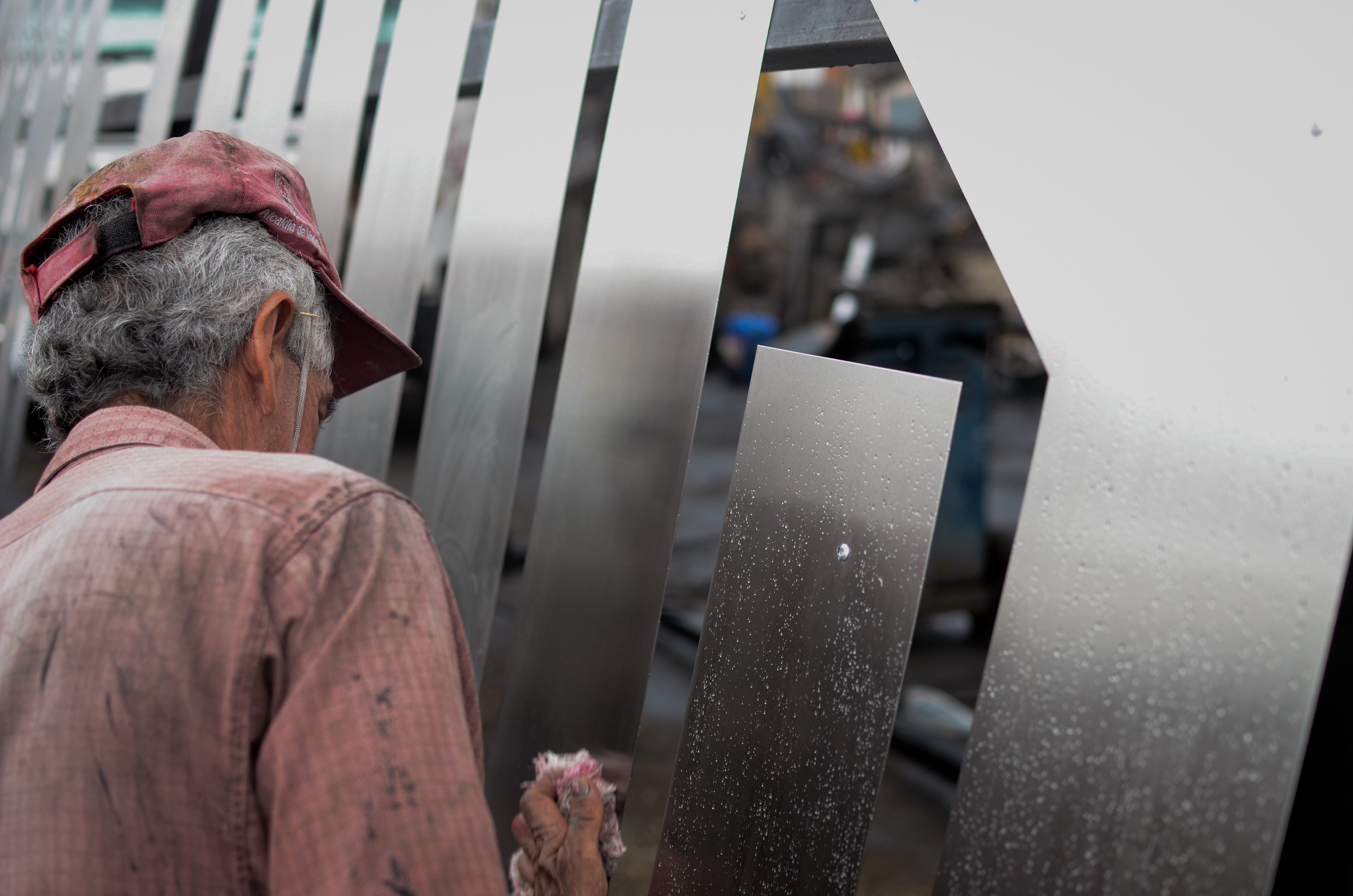

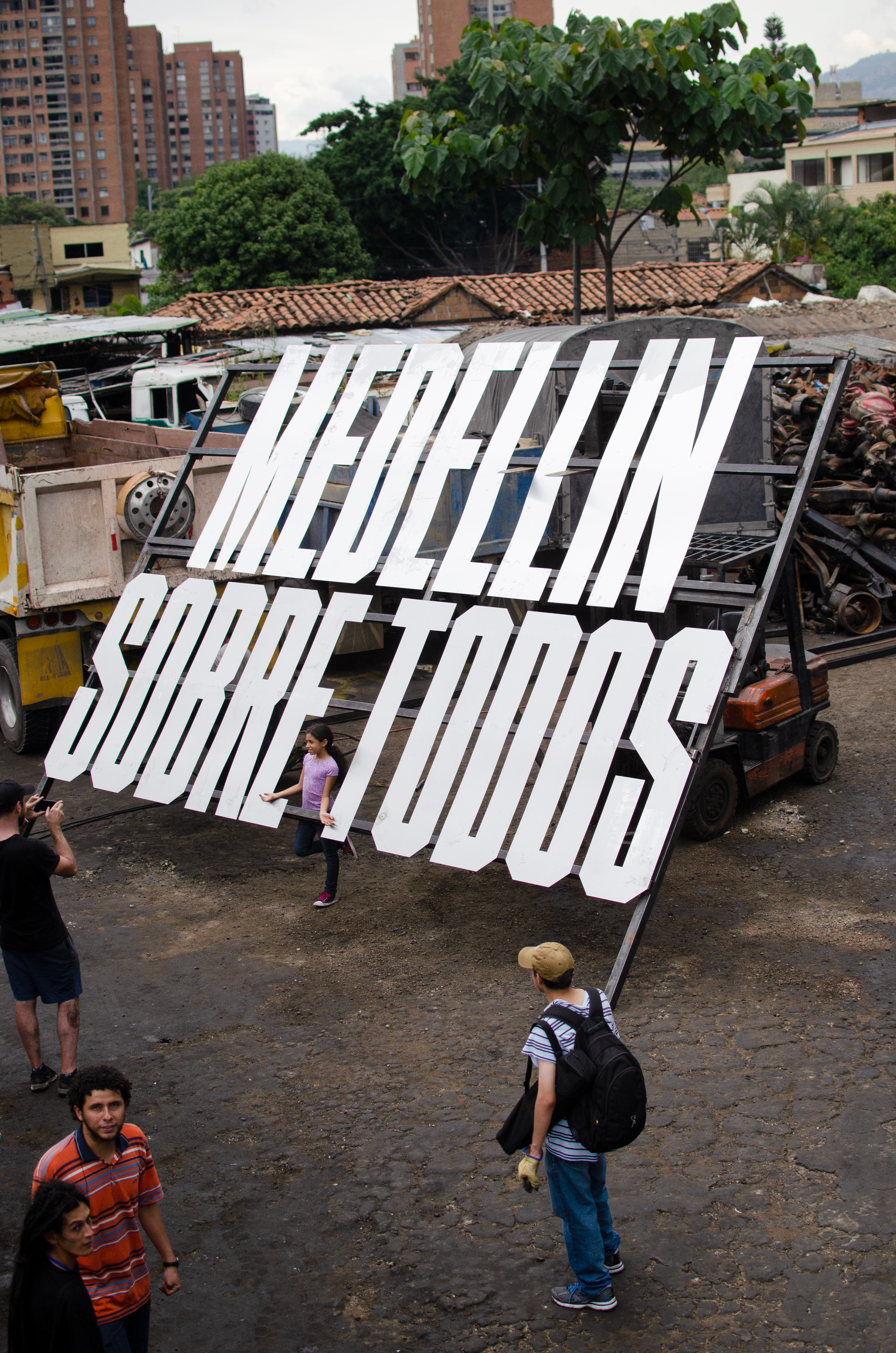
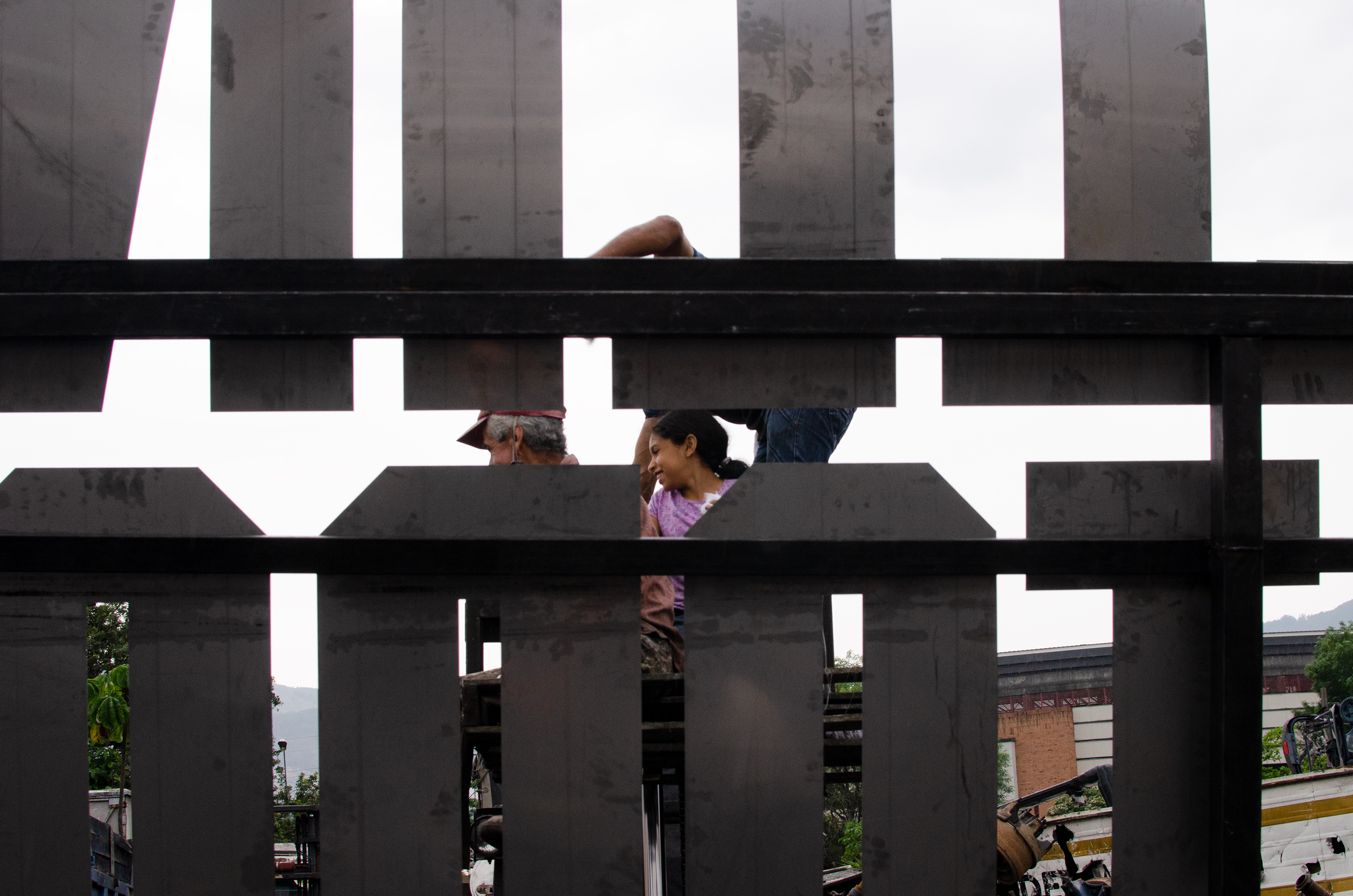
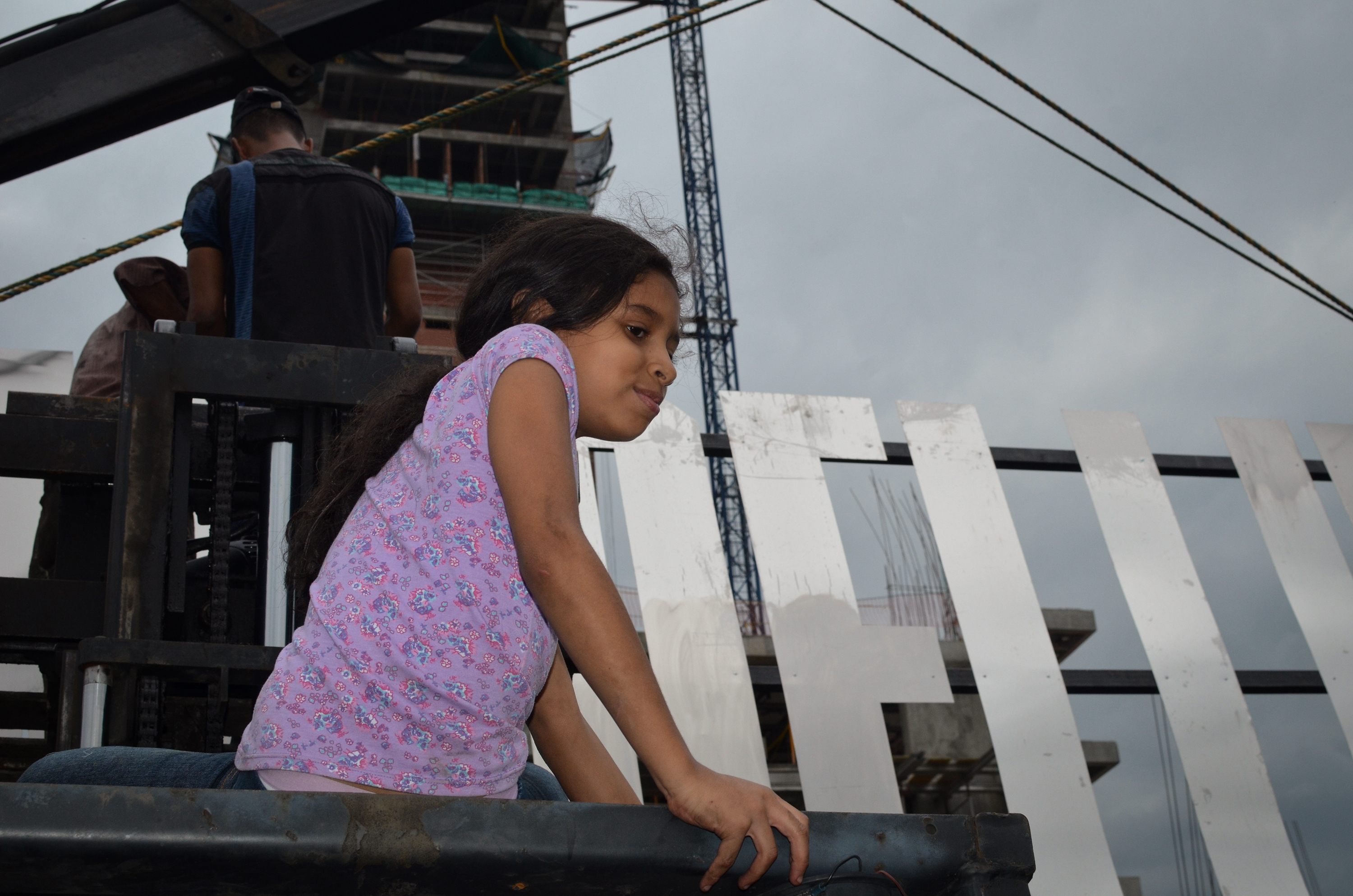
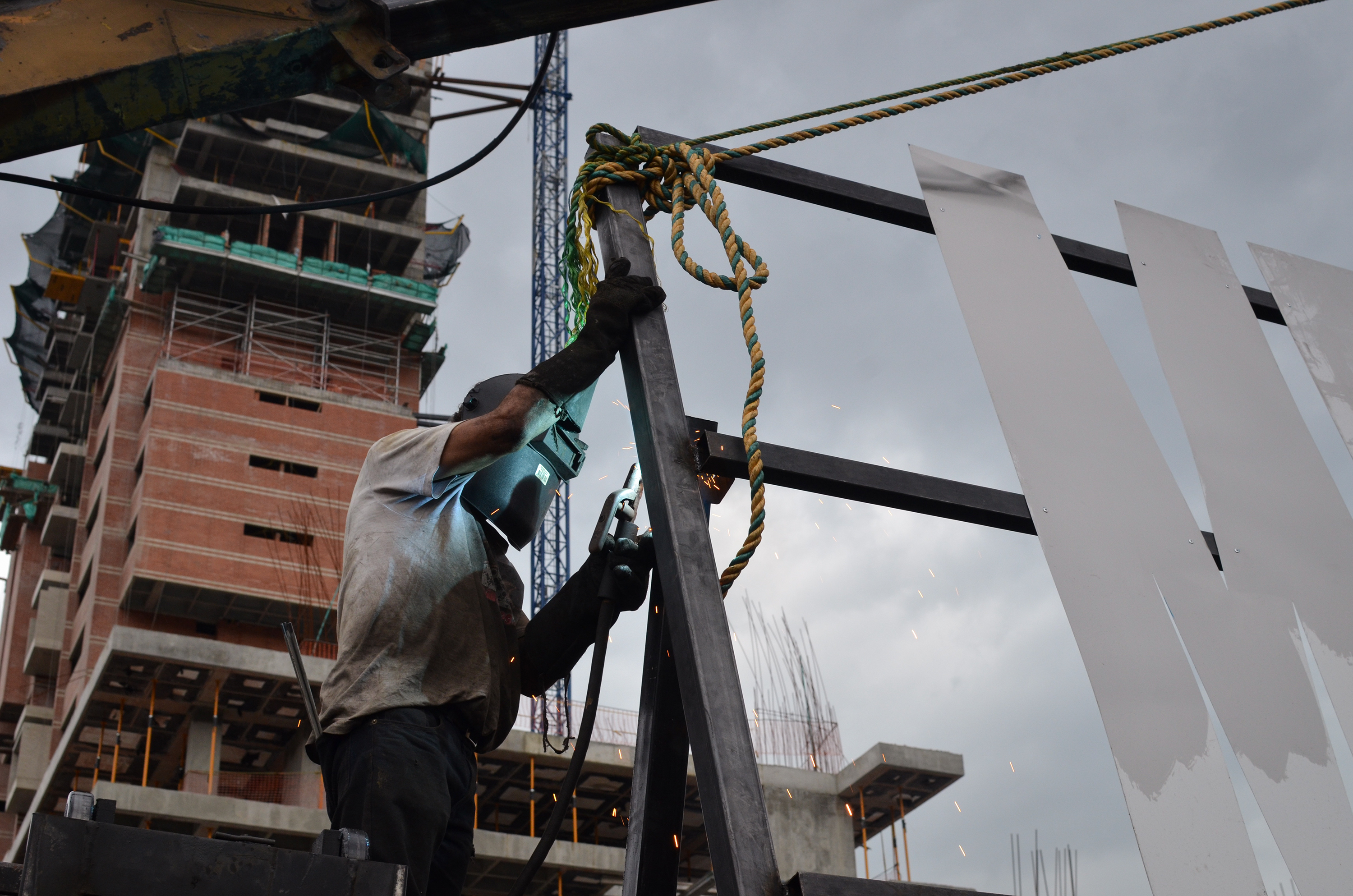

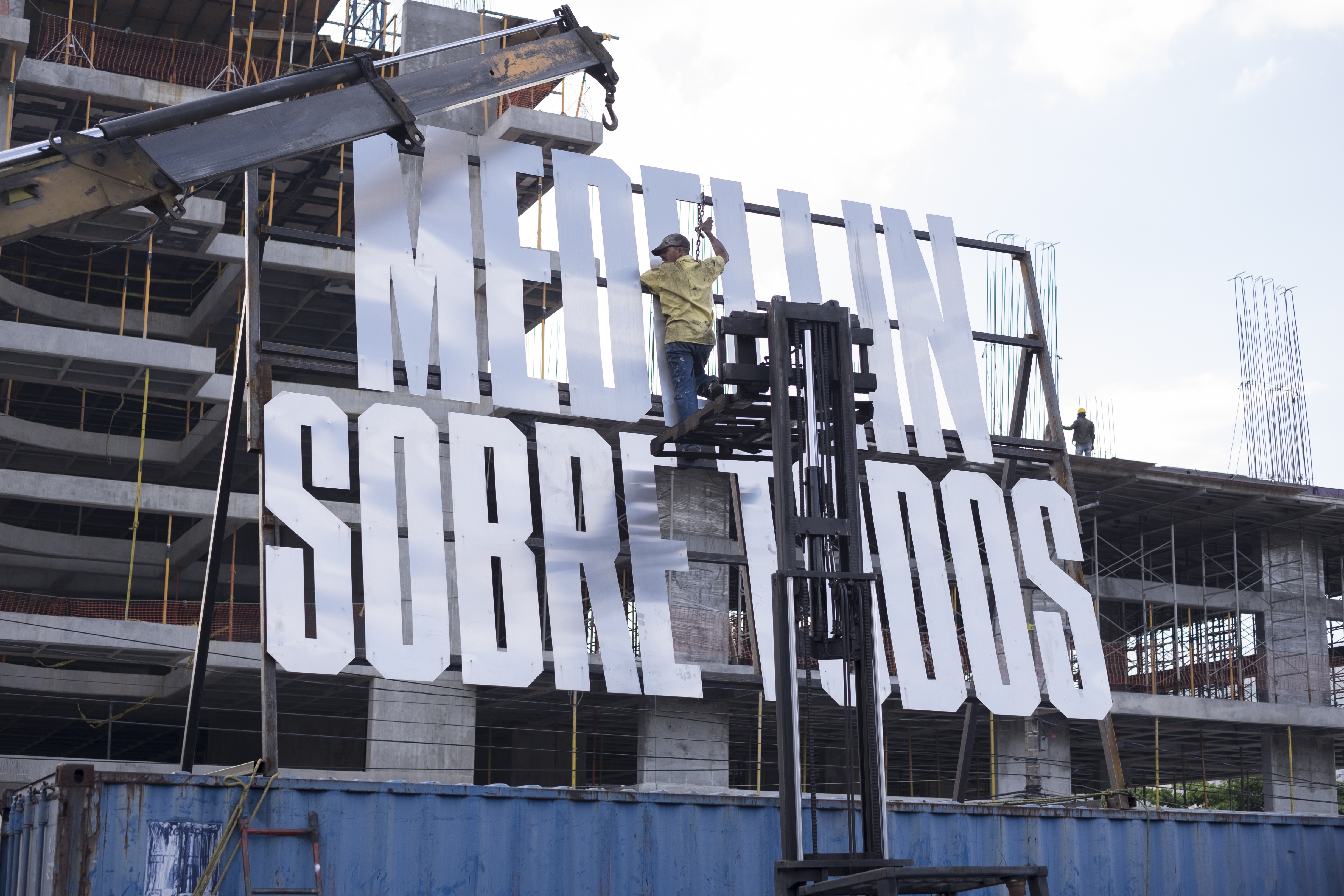
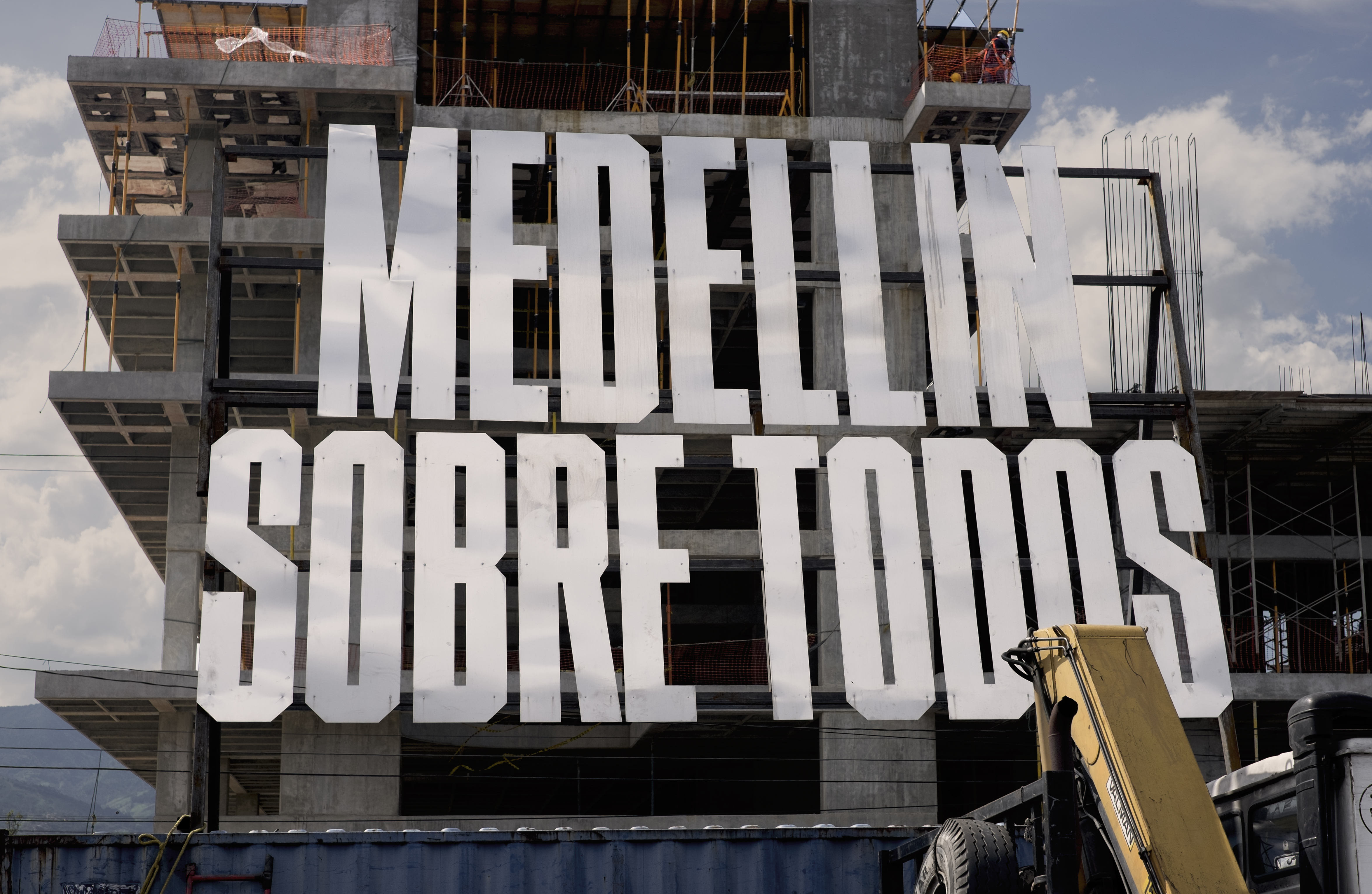
MARCH
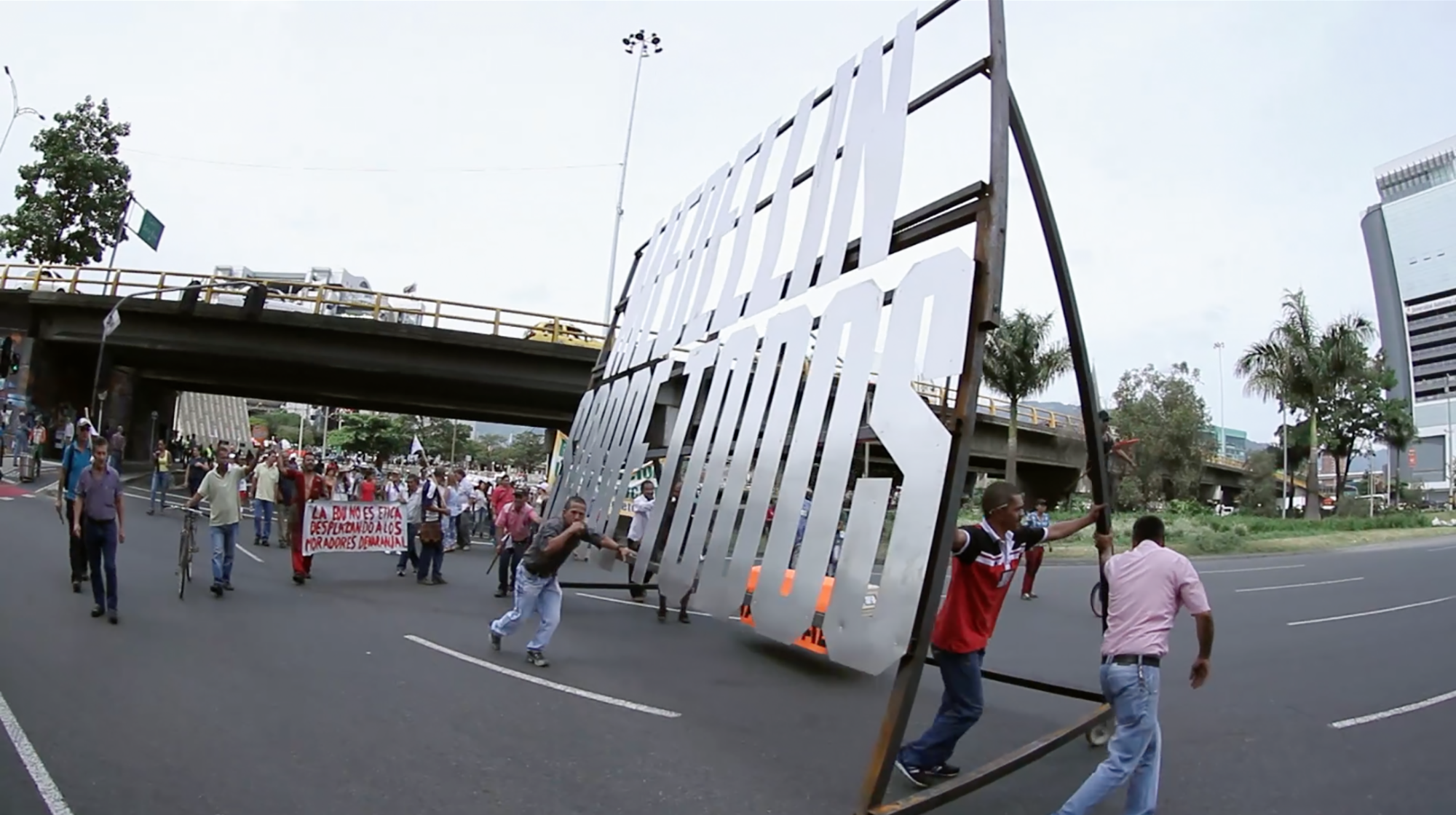
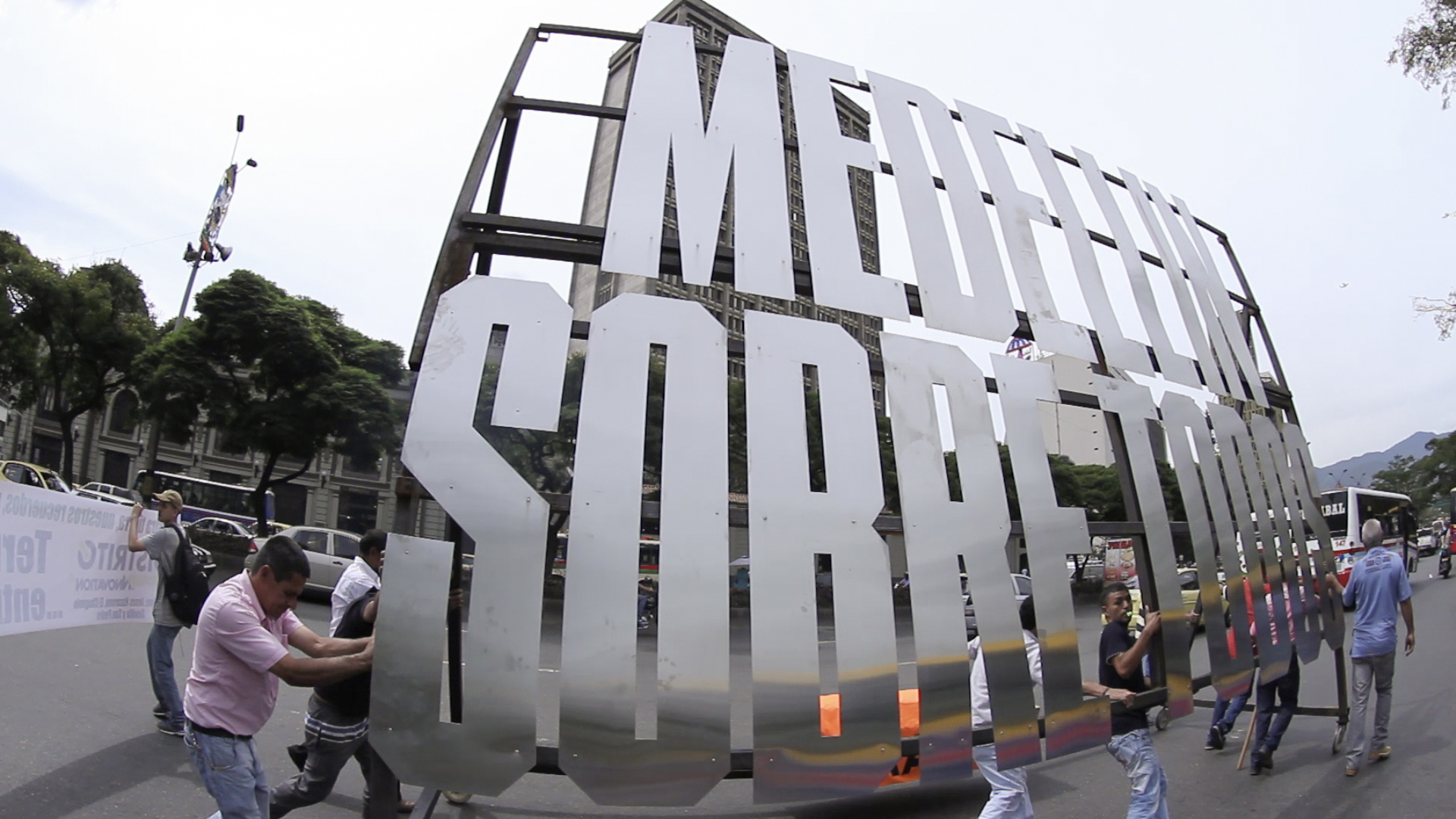
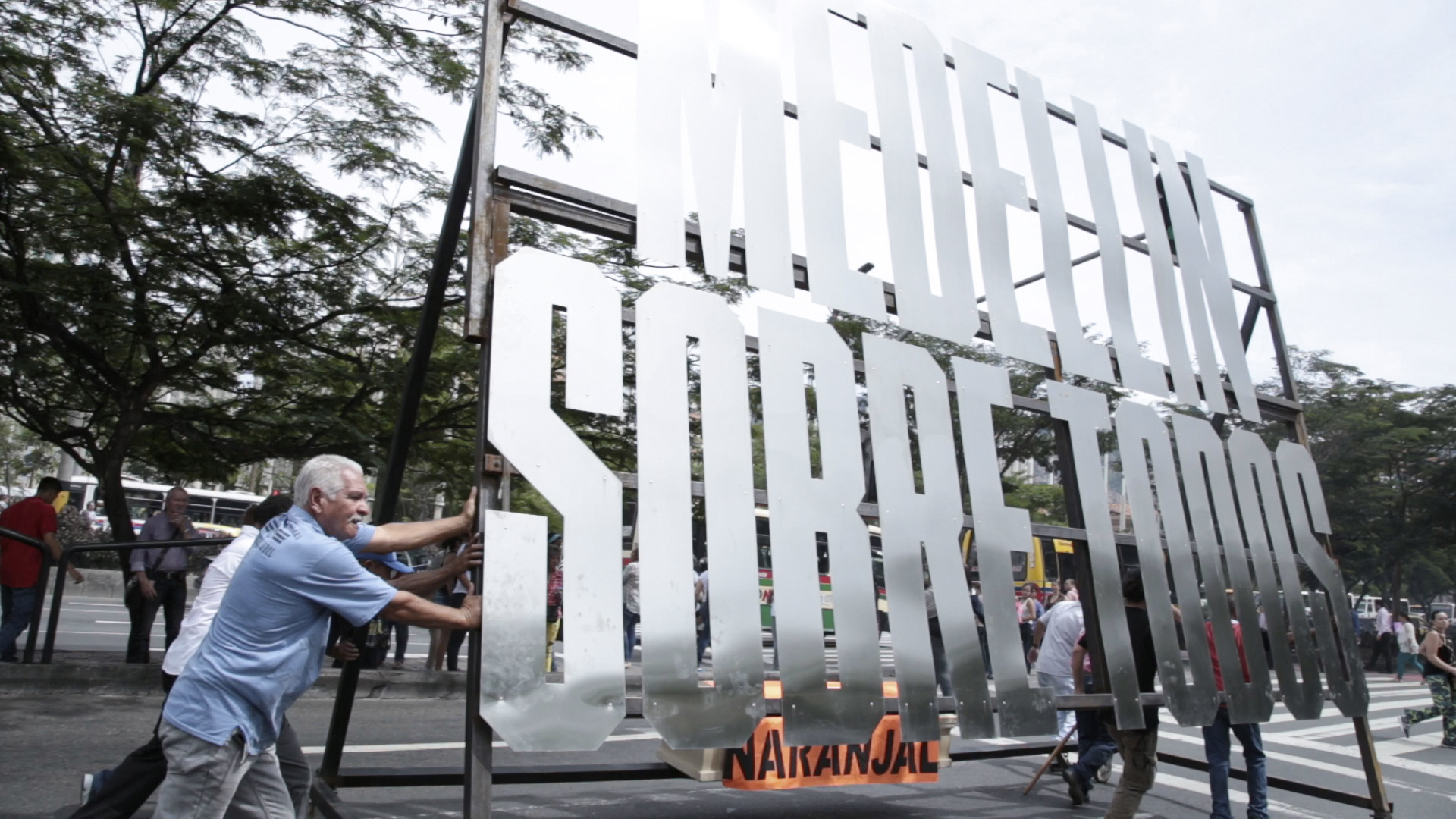

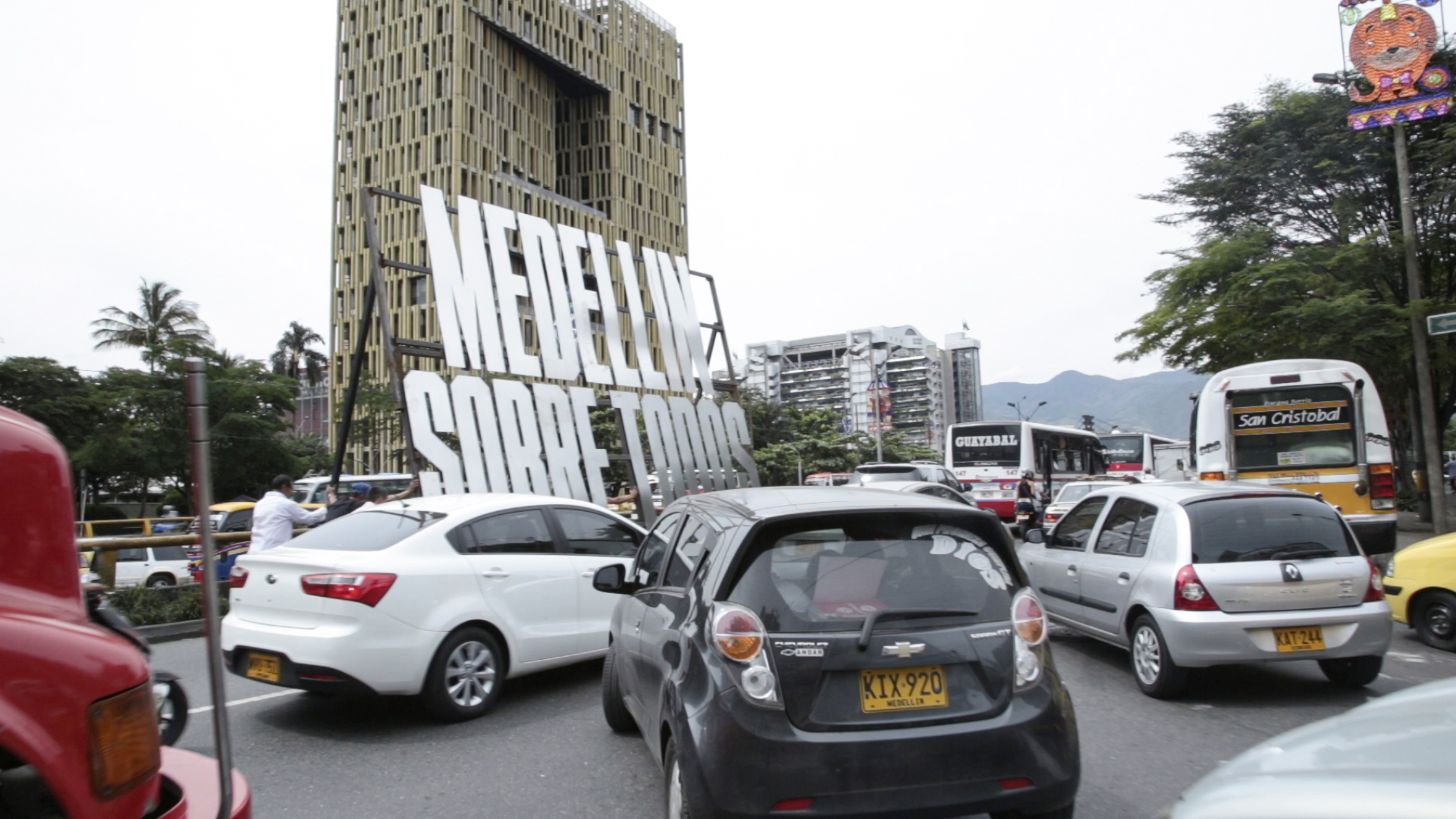
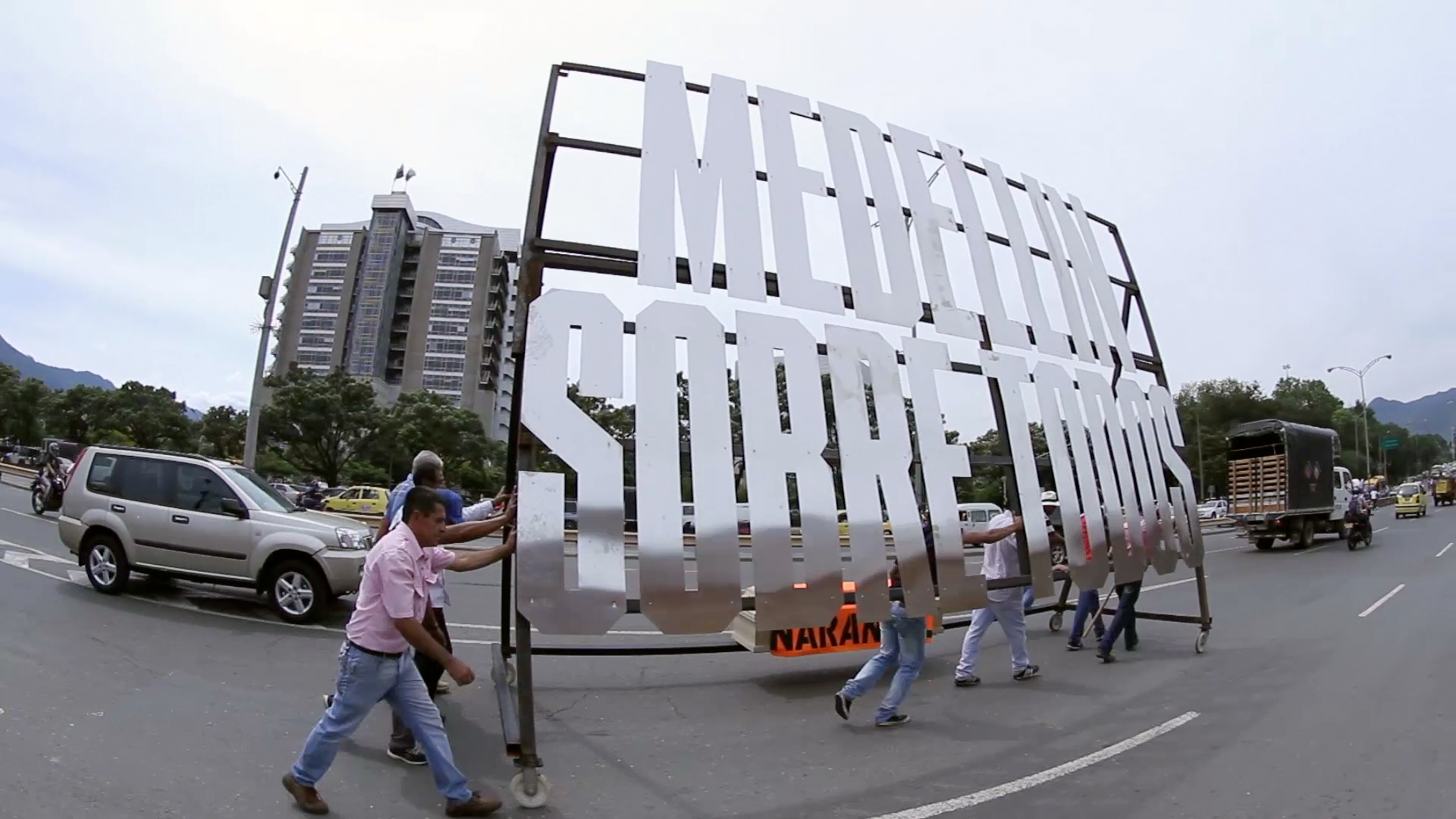

CALDODECULTIVO: Unai Reglero, Gabriela Córdoba Vivas, Guillermo Camacho, Jhon Jairo Pinzón y Eduardo Salamanca.
+ Alfonso Rodríguez "Poncho" y Andrés Buitrago.
+ Alfonso Rodríguez "Poncho" y Andrés Buitrago.
With the complicity of the workers of the Naranjal neighborhood: Eduardo "Peineto", Yasmin Lorena, Omar, Federico, Raúl, Arcadio, Luis Ángel "Tocayo", Fernando Sierra (...)
Neighbors of El Chagualo: Juan Carlos, María Elena, Sara, Juliana, Orlando (…)
Con la colaboración esencial de Juan Diego Ibatá, Juliana Mesa, Santiago Loaiza, Tricilab.
Con la colaboración esencial de Juan Diego Ibatá, Juliana Mesa, Santiago Loaiza, Tricilab.

FIAT ARS
PEREAT MUNDUS
ENCUENTRO URGENTE DE RESISTENCIAS ESTÉTICAS ANTE UN MUNDO EN LLAMAS
25.09.2025 — 19:00
24-25.10.2025 — 18:00
Mèdol, Centre d’Arts Contemporànies de Tarragona
Arquitectura Expandida, Democracia, Leónidas Martín, Espectros de lo Urbano, Todo por la Praxis, Tau Luna Acosta, Oscar Guayabero.
Curaduría: CaldodeCultivo
Producción: Künstainer
25.09.2025 — 19:00
24-25.10.2025 — 18:00
Mèdol, Centre d’Arts Contemporànies de Tarragona
Arquitectura Expandida, Democracia, Leónidas Martín, Espectros de lo Urbano, Todo por la Praxis, Tau Luna Acosta, Oscar Guayabero.
Curaduría: CaldodeCultivo
Producción: Künstainer
¿Qué puede el arte ante un mundo en llamas? ¿Qué hacer ante el genocidio en curso, la inminencia de otra guerra mundial, el cataclismo climàtico? ¿Aún es el arte una herramienta o arma eficiente, como defendía Benjamin, con la que dar batalla por la vida digna, cuando no por la misma existencia? ¿Sería este capaz de hacer descarrilar el proyecto neofascista que avanza a toda máquina colonizando el planeta entero?
En el encuentro “Fiat Ars Pereat Mundus” reflexionaremos colectivamente sobre cómo dar respuesta desde las prácticas artísticas a los desafíos existenciales que nos amenazan y atenazan. Para ello, invitamos a artistas con una dilatada experiencia desarrollando prácticas que acompañan y amplifican luchas sociales y políticas, a responder a la sarcástica -y profética- afirmación “Fiat Ars, Pereat Mundus” (Hágase el arte, aunque el mundo perezca), con la que Benjamin denunció la estetización de la política y su complicidad con el fascismo, invitando a combatirla politizando la estética.
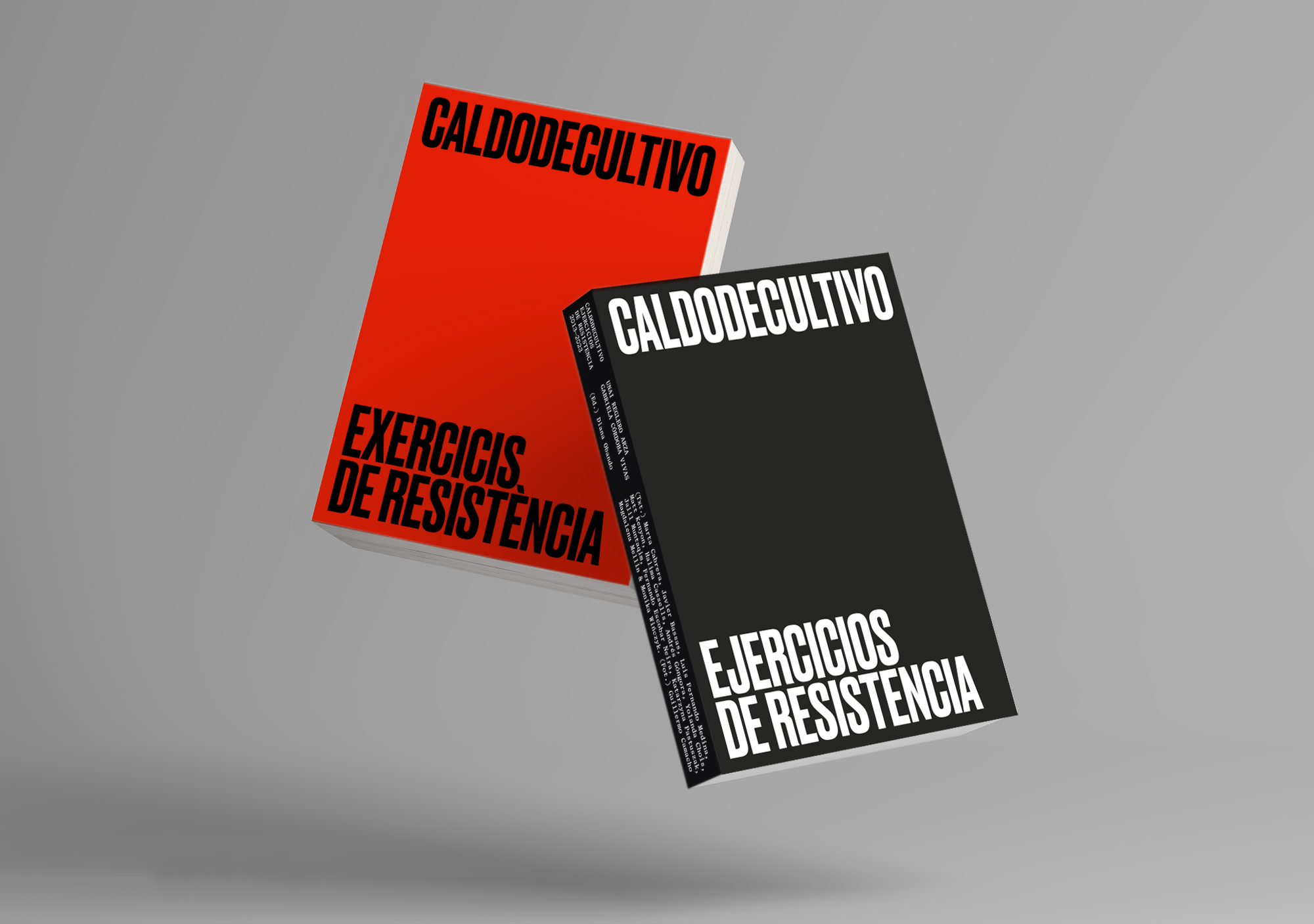




CALDODECULTIVO
EJERCICIOS DE RESISTENCIA
Mèdol, Centre d’Arts Contemporànies
de Tarragona, 2025
Dos ediciones independientes:
Español / Català
15.6 × 21.6 cm
352 pág.
Encuadernación Suiza
Cubiertas en serigrafía
ISBN: 978-84-09-66713-0
PVP:27€
+info:
unai@caldodecultivo.com
de Tarragona, 2025
Dos ediciones independientes:
Español / Català
15.6 × 21.6 cm
352 pág.
Encuadernación Suiza
Cubiertas en serigrafía
ISBN: 978-84-09-66713-0
PVP:27€
+info:
unai@caldodecultivo.com
La práctica artística del colectivo CALDODECULTIVO busca fortalecer las luchas que oponen resistencia a la dominación capitalista, colonialista y patriarcal. En sus proyectos despliegan dispositivos de contrapropaganda y agitación popular con los que ejercitar, cual deporte de combate, la imaginación política radical.
Este libro es una narración, a muchas voces, de la experiencia del colectivo a partir de un recorrido por sus proyectos más significativos de la década 2013-2023. En él, además de CALDODECULTIVO, diversxs investigadorxs y activistas reflexionan sobre una práctica artística que es, como se comprobará, necesariamente conflictual.
Aquí se levantan las imágenes de unos proyectos que todavía hoy son afectos y resistencias en movimiento. Si estas páginas logran agitar a quien las lea, con parte de la fuerza con que agitó a quienes vivieron los proyectos, su labor estará hecha.
Unai Reglero y Gabriela Córdoba Vivas
(Ed.) Diana Obando
Ensayos de:
Marta Cabrera, Javier Bassas, Matt Kenyon, Luis Fernando Medina “Luscus”, Halima Afi Cassells, Yolanda Chois Rivera, Andrés Góngora, Jalil Abdul Muntaqim, Fernando Escobar Neir, Katarzyna Pastuszak, Magdalena Mellin & Monika Wińczyk. (Fot.) Guillermo Camacho
Traducció de l’edició en català:
Martí Sales i Carles Serrat
(Ed.) Diana Obando
Ensayos de:
Marta Cabrera, Javier Bassas, Matt Kenyon, Luis Fernando Medina “Luscus”, Halima Afi Cassells, Yolanda Chois Rivera, Andrés Góngora, Jalil Abdul Muntaqim, Fernando Escobar Neir, Katarzyna Pastuszak, Magdalena Mellin & Monika Wińczyk. (Fot.) Guillermo Camacho
Traducció de l’edició en català:
Martí Sales i Carles Serrat
PROJECTS
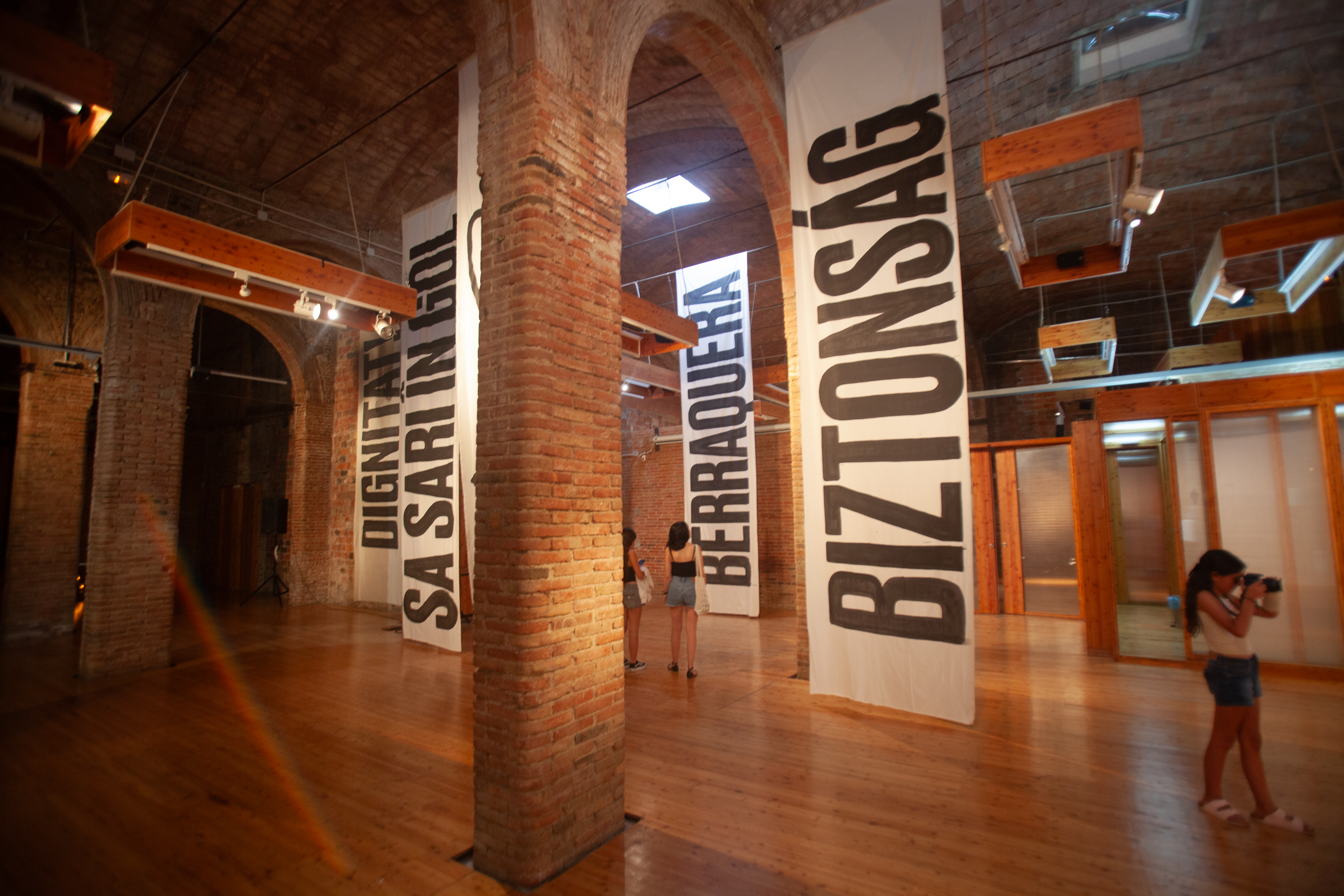
CARTA BLANCA
Reus, Catalunya (2025)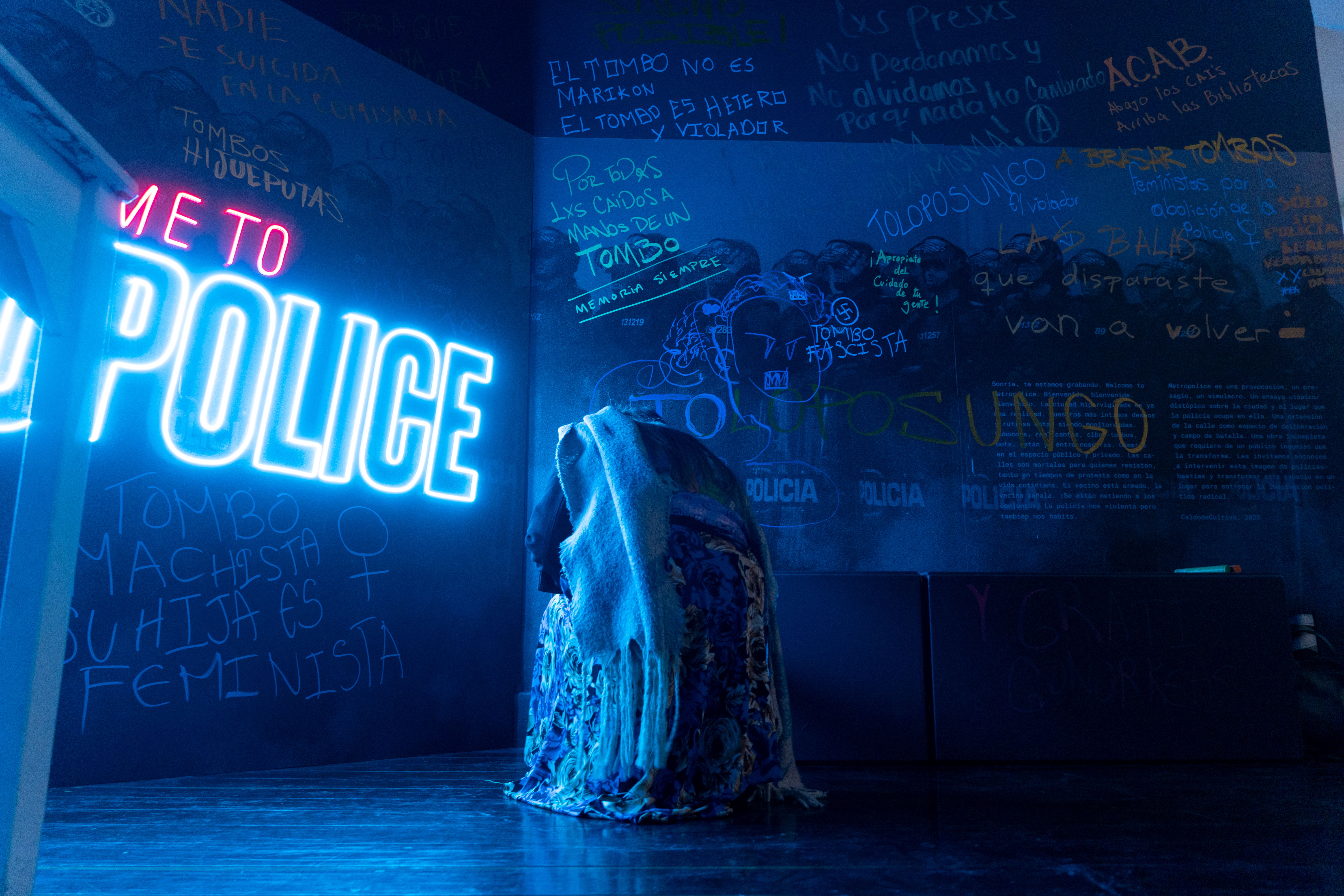
METROPOLICE
Bogotá DC.(2023)THE ABOLITIONIST
ARTIFACT
Buffalo, New York (2022)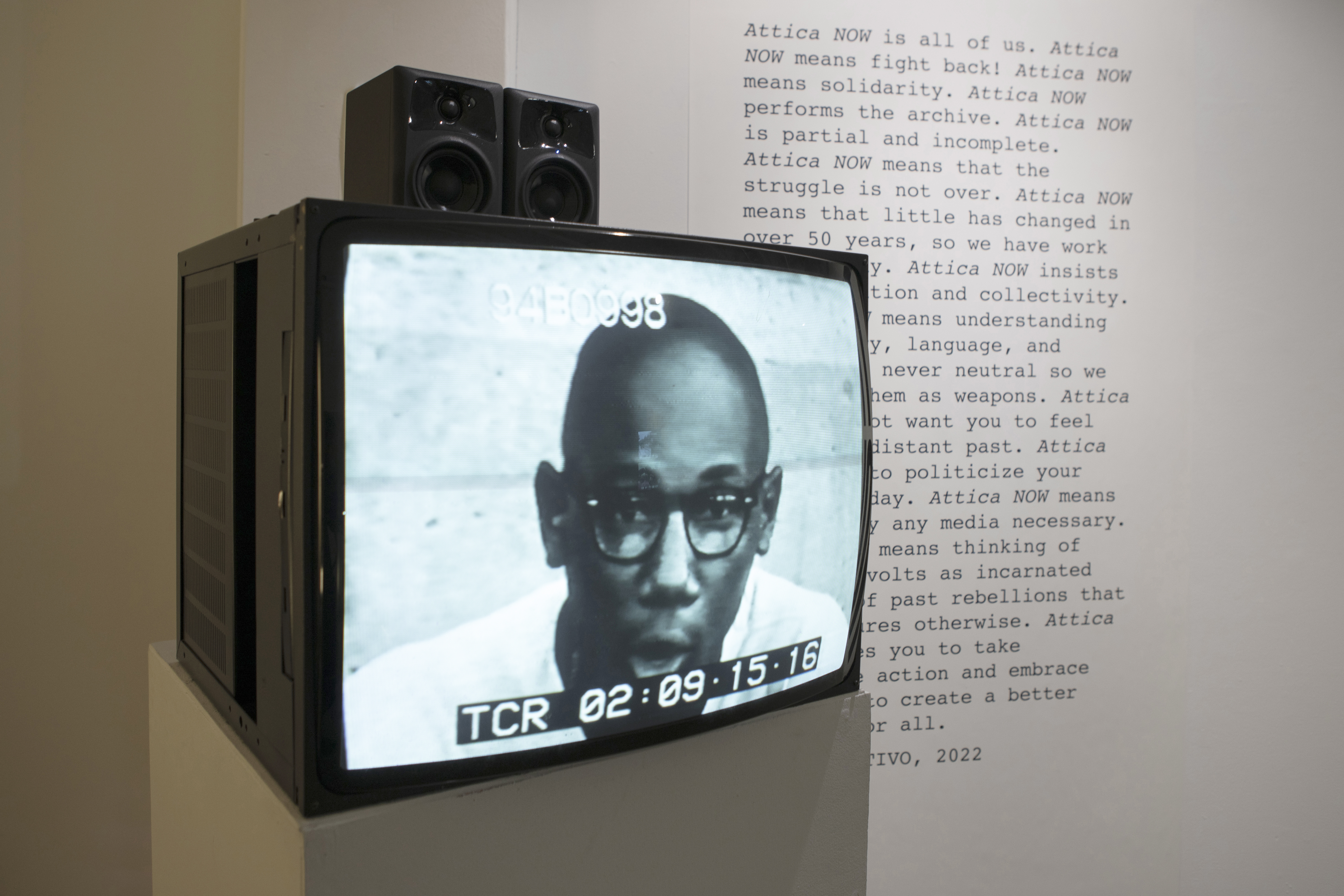
ATTICA NOW
Buffalo, New York (2021-2022)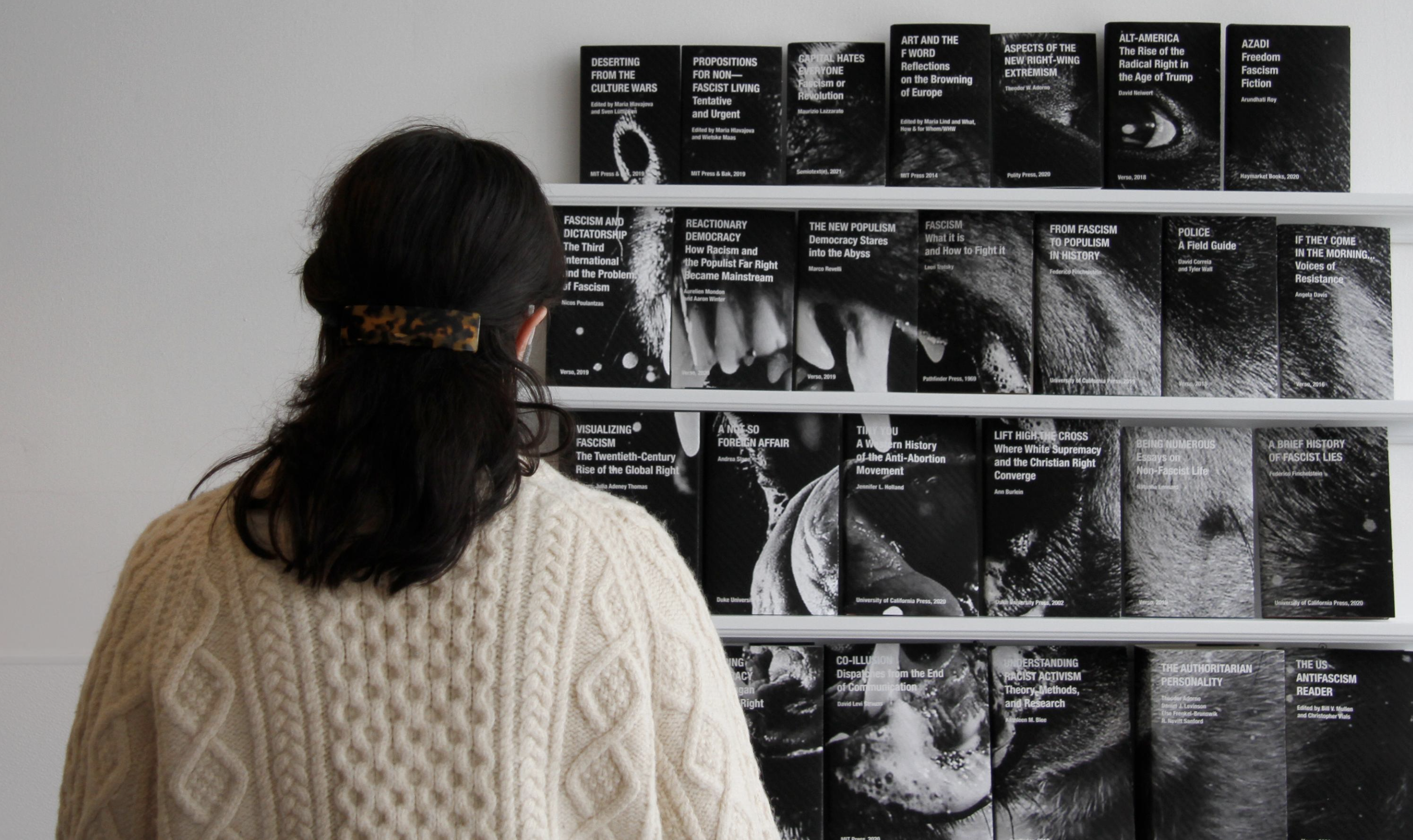
EVERYTHING
IS GOING TO BE
ALT-RIGHT
Buffalo, New York (2020)
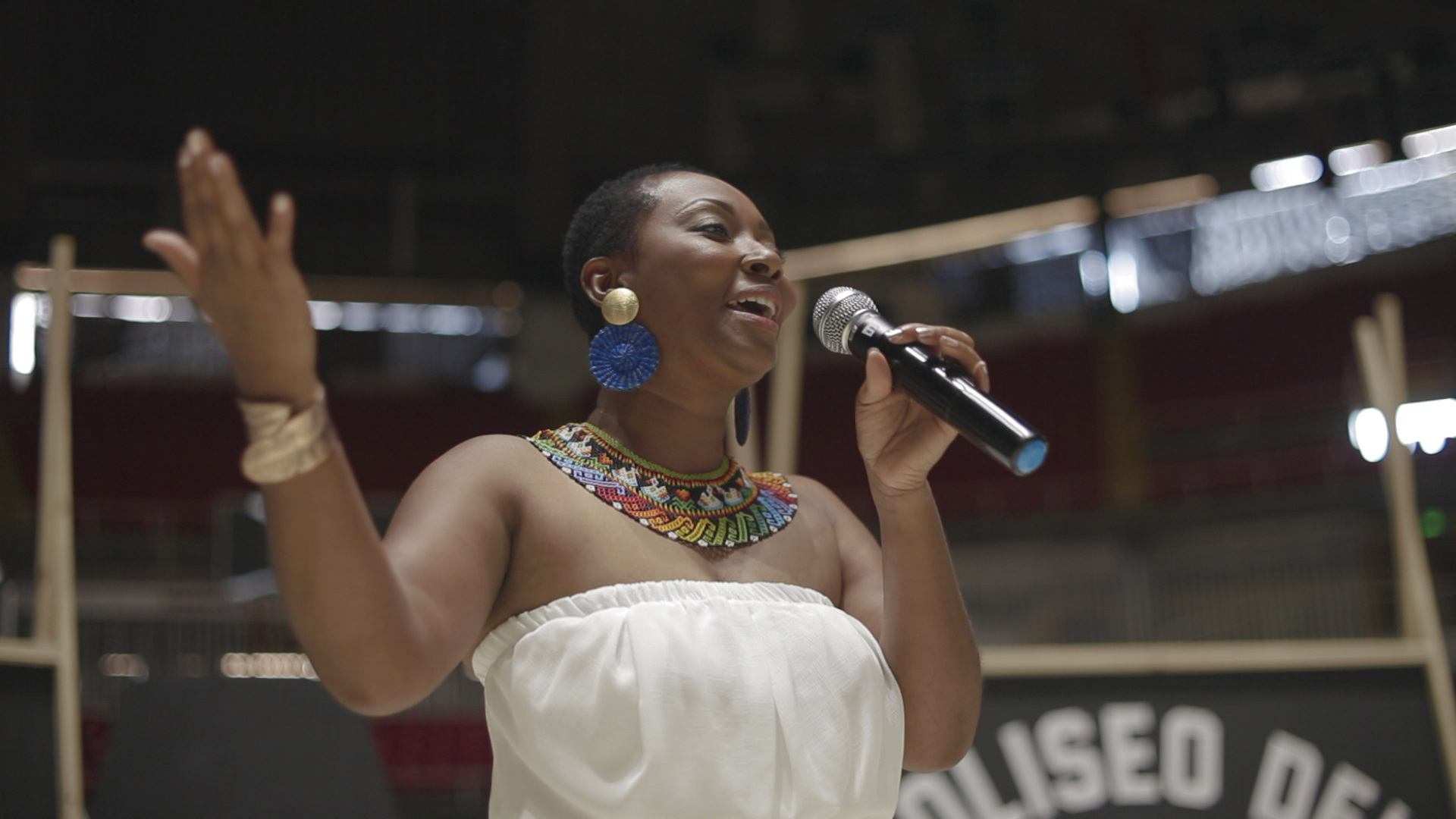
EL COLISEO
DEL PUEBLO
Cali (Colombia), 2018.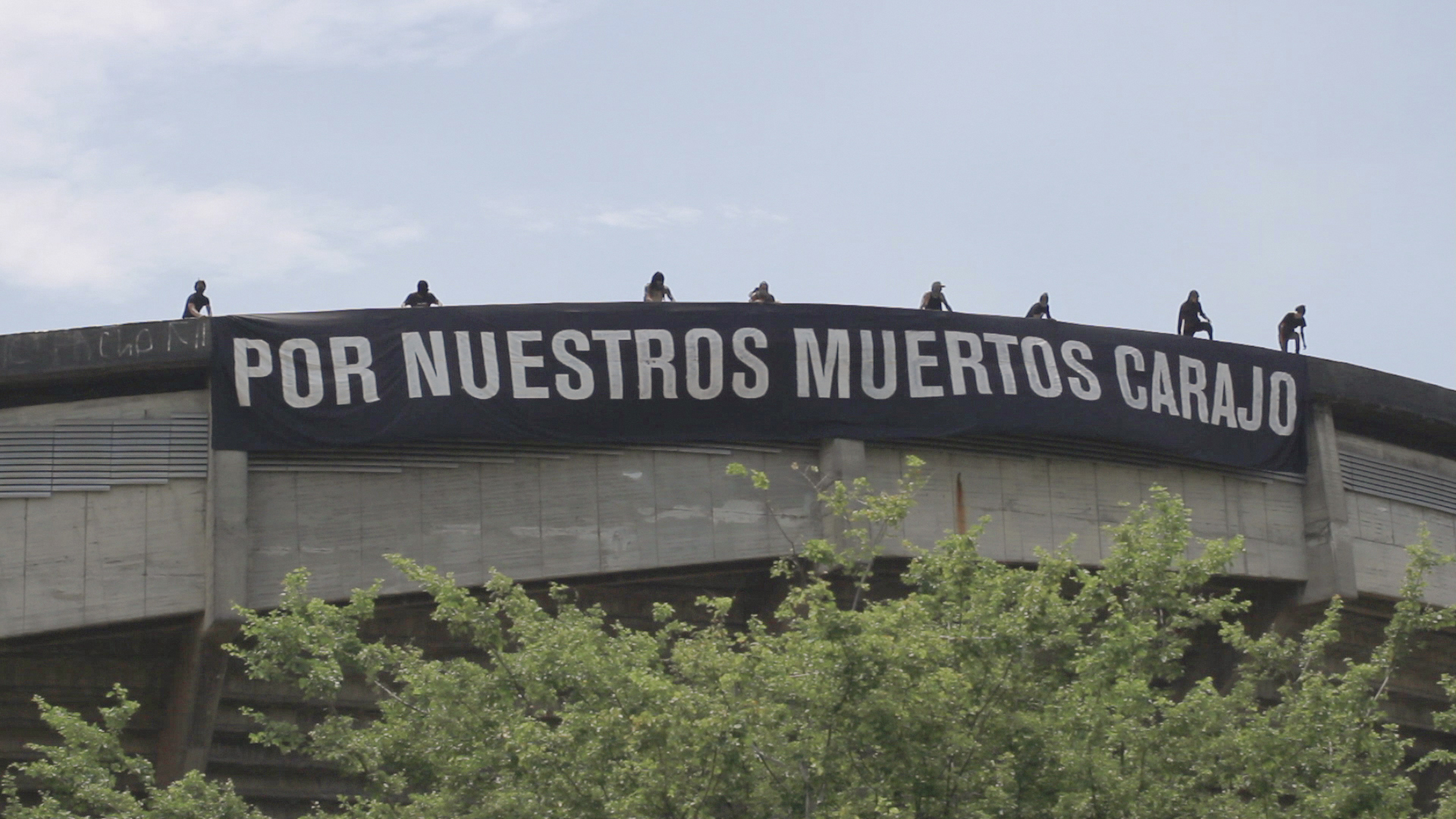
LA TOMA
DEL COLISEO
THE STORMING OF THE COLISEUM
Cali (Colombia) 2018
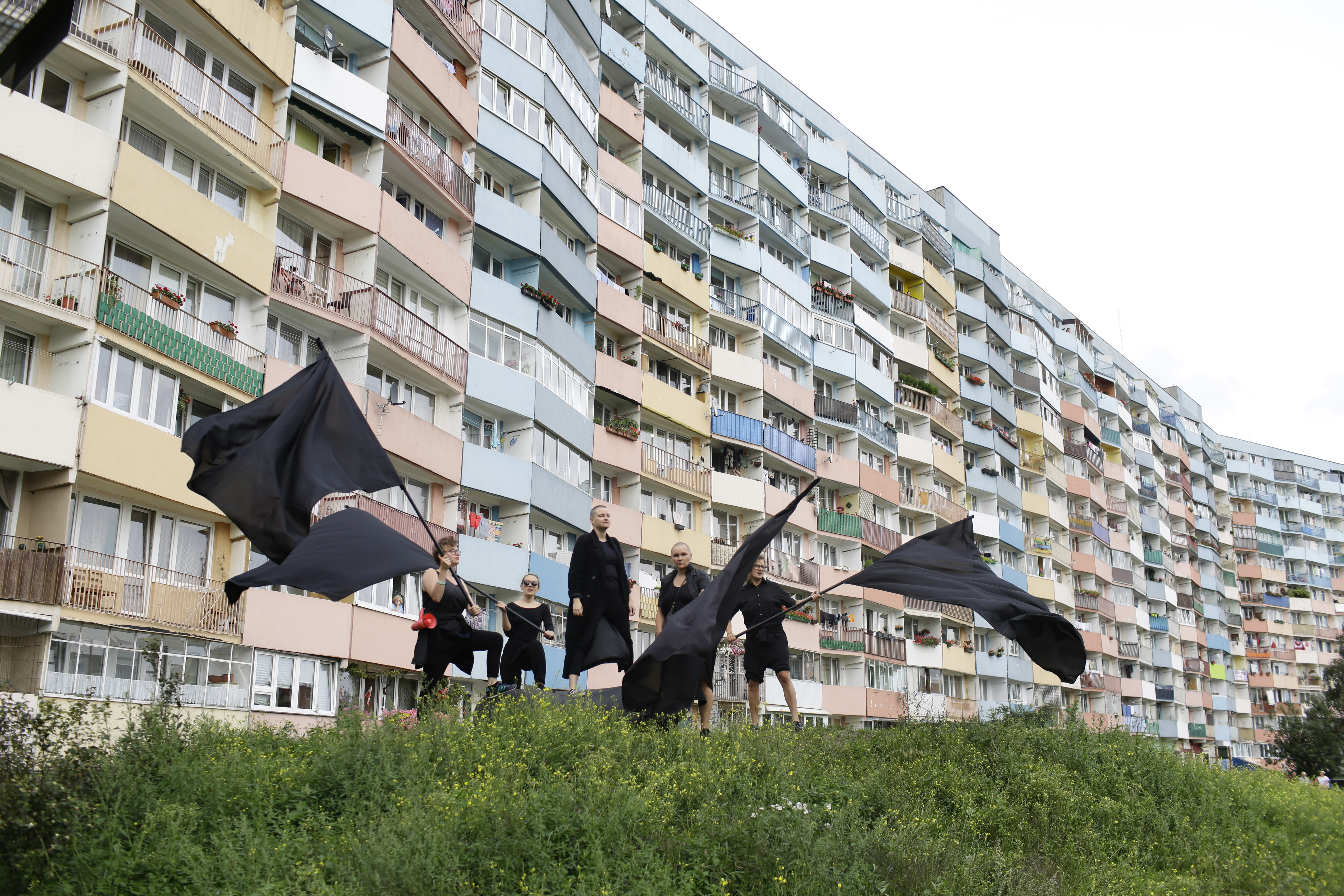
BLACK VENUS
PROTEST
Gdańsk (Poland), 2017.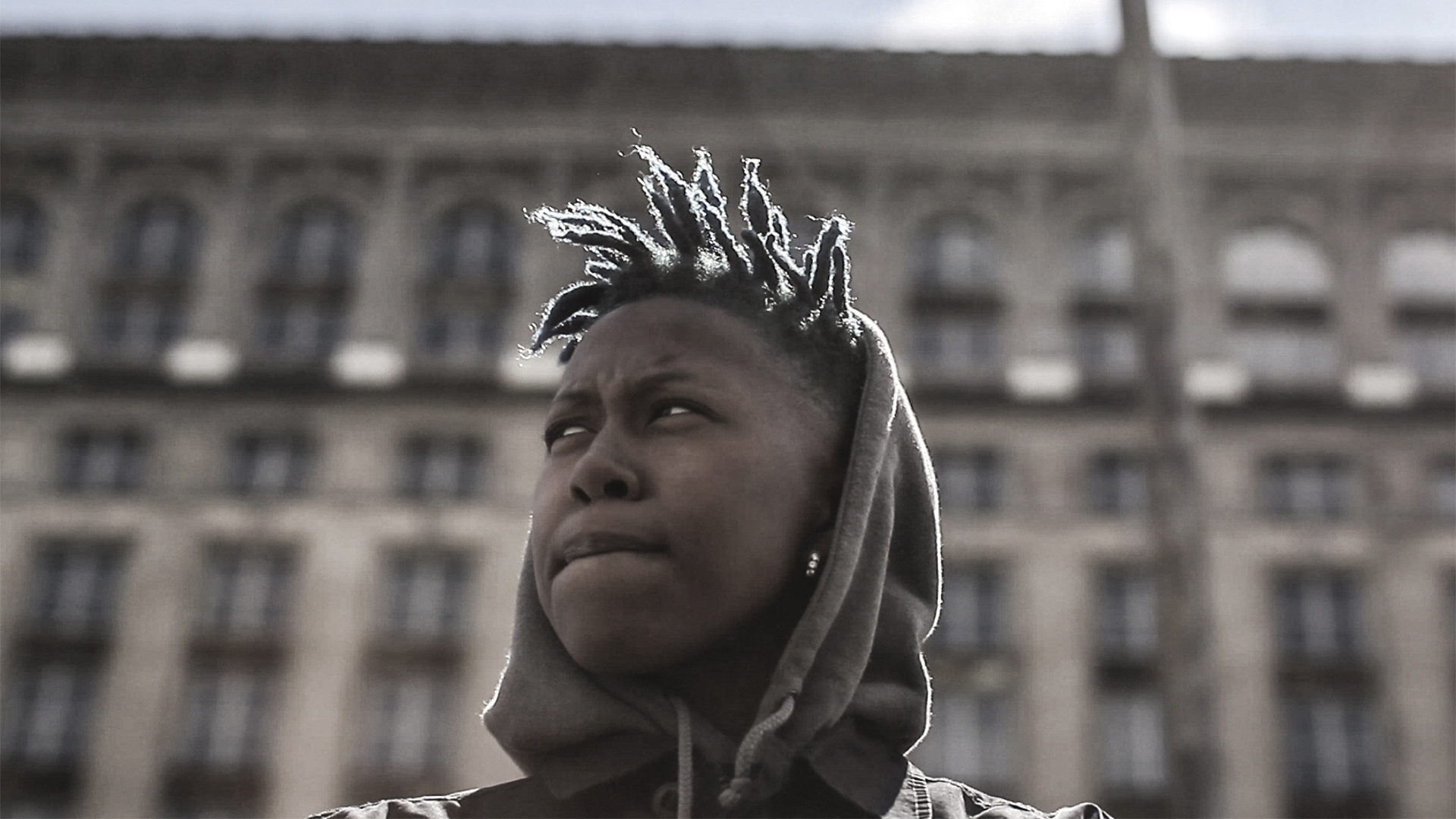
DETROITERS
Detroit (USA), 2016-2017.
ESTE PREDIO
NO SE VENDE
THIS LAND IS NOT FOR SALEBogotá (Colombia), 2016.

MEDELLIN
SOBRE TODOS
MEDELLIN ÜBER ALLESMedellín (Colombia) 2015—2016
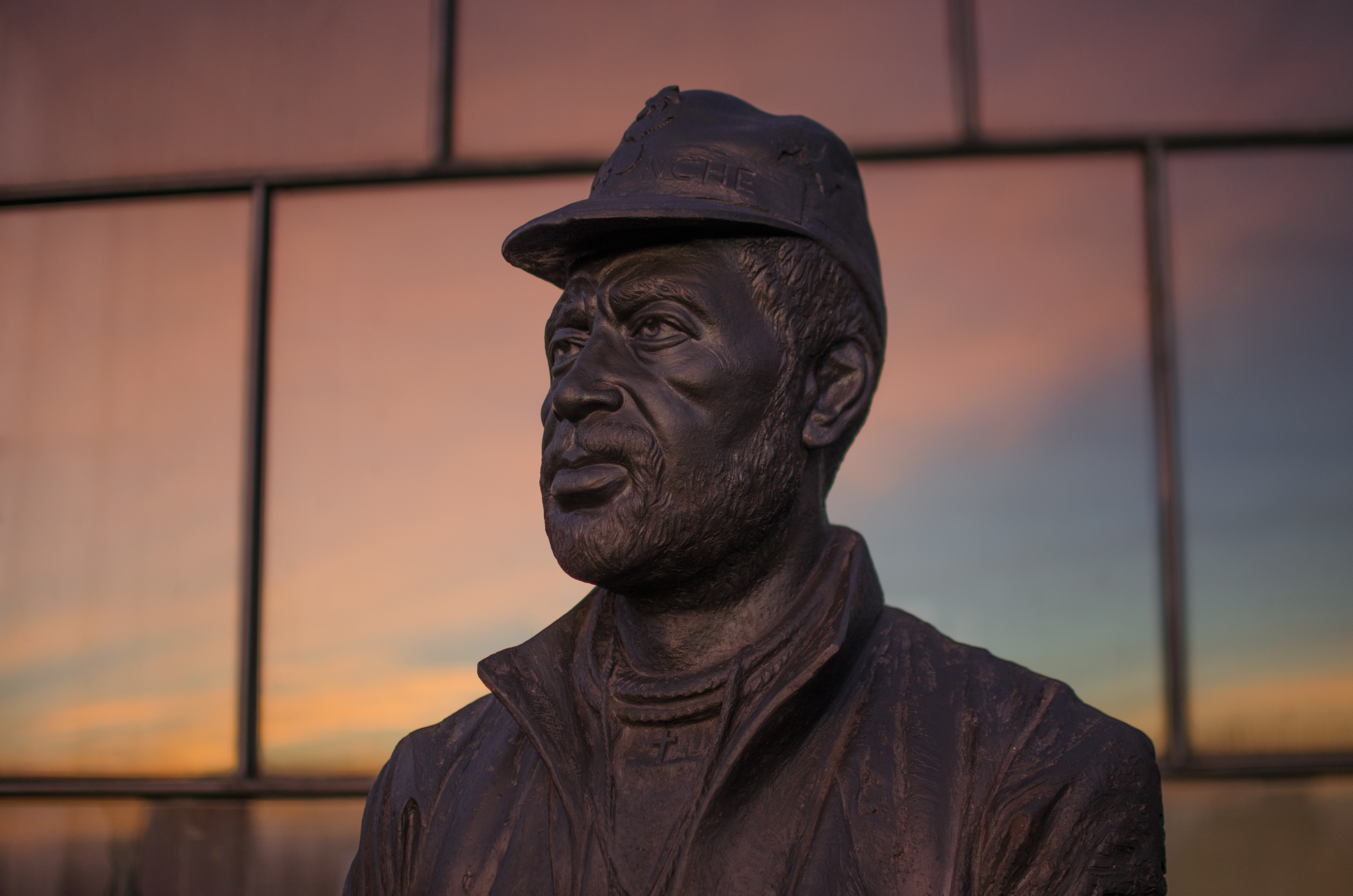
COMANCHE
Bogotá (Colombia) 2015YO NO SOY UNA PUTA
YO SOY LA PUTA
Y PARA USTED:
SEÑORA PUTA
Mrs. WHOREBogotá (Colombia), 2014.
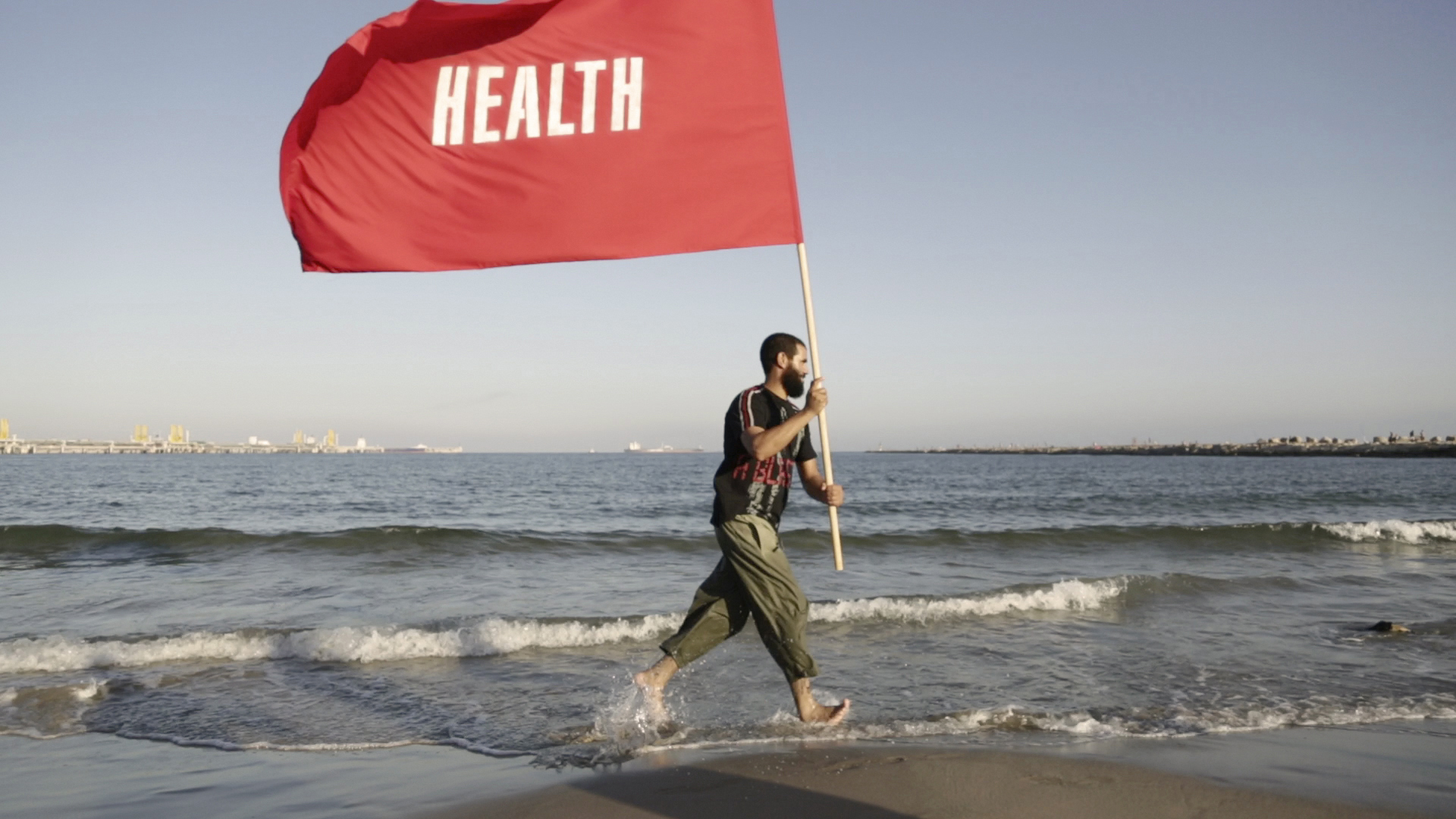
TERRA PROMESA
Tarragona (Spain), 2014.LA TOMA
DEL MAMBO
Bogotá (Colombia), 2018.ARRIBA
LOS DE ABAJO
Bogotá (Colombia), 2013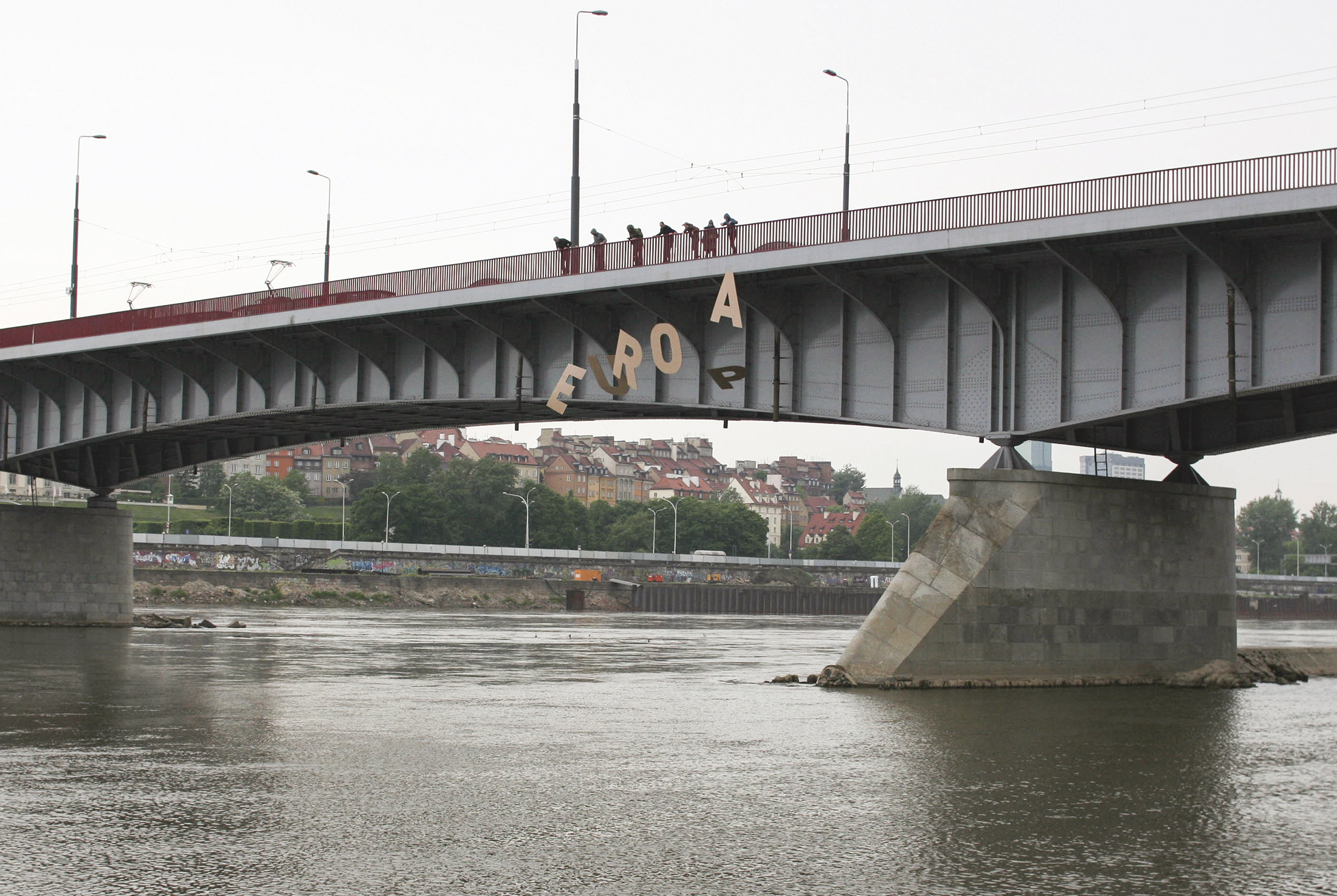
EUROPA
Warsaw (Poland), 2013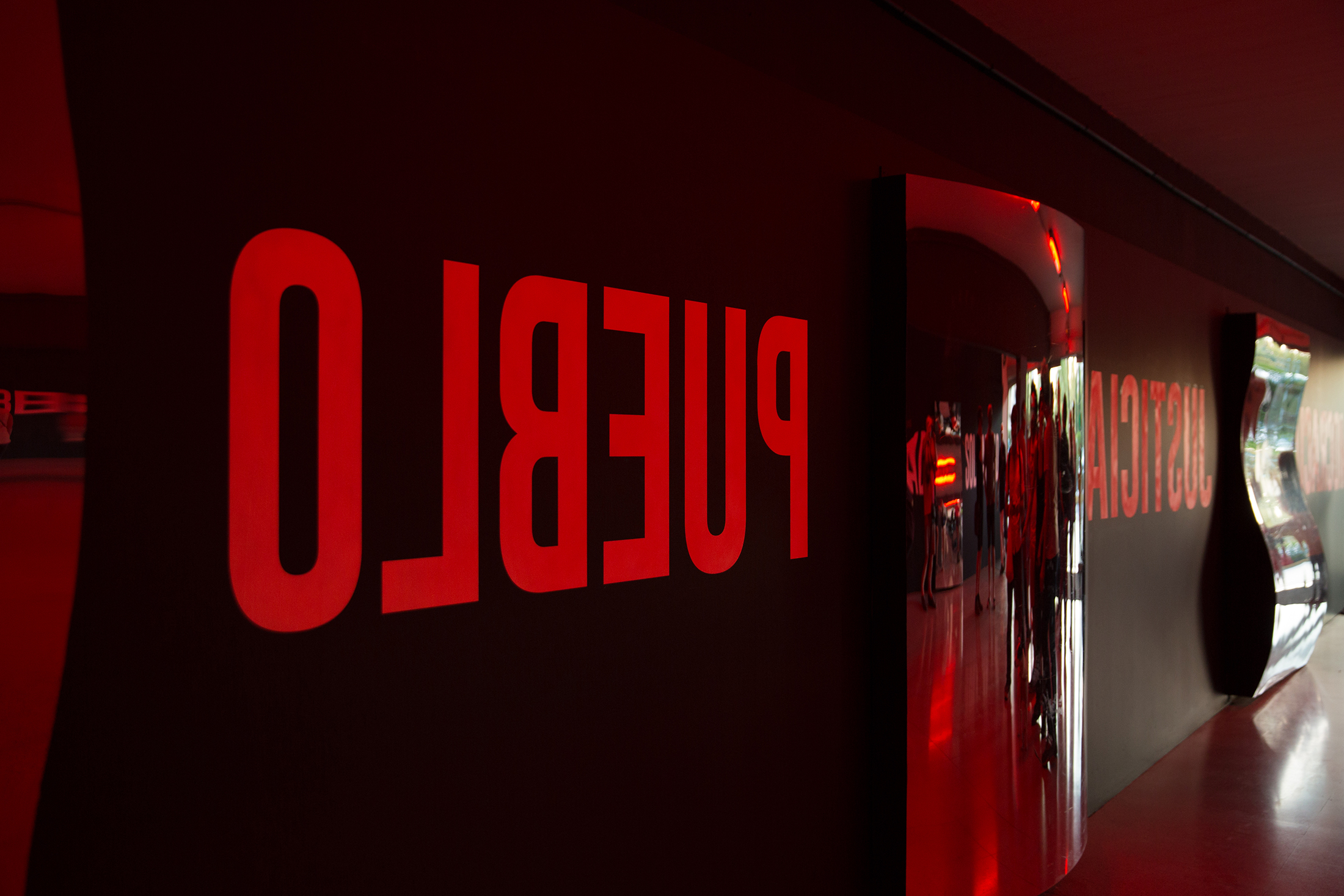
DISTORSIÓN
LIBRE
Tarragona (Spain) 2010-2017

LO IMPORTANTE
ES LA BASE
WHAT MATTER IS THE BASETarragona (Spain) 2013
